

Gecić Law is delighted to announce the promotion of Vuk Leković to Counsel. The new role recognizes his outstanding work in Competition Law, EU regulation, and the firm’s fast‑growing Sports and AI practices. A Proven Track Record EUR 1.5 billion Telekom Srbija transaction – Orchestrated the multijurisdictional merger‑control strategy that underpinned the deal’s successful closing. Precedent‑setting victories – Led Telekom Srbija to a landmark win before the North Macedonian regulator and represented Arena Channels Group in Bosnia and Herzegovina and Kosovo. Regulatory insight – Formerly with Serbia’s Commission for Protection of Competition and National Bank, bringing invaluable “insider” perspective to compliance and enforcement trends. Recognition and […]
Details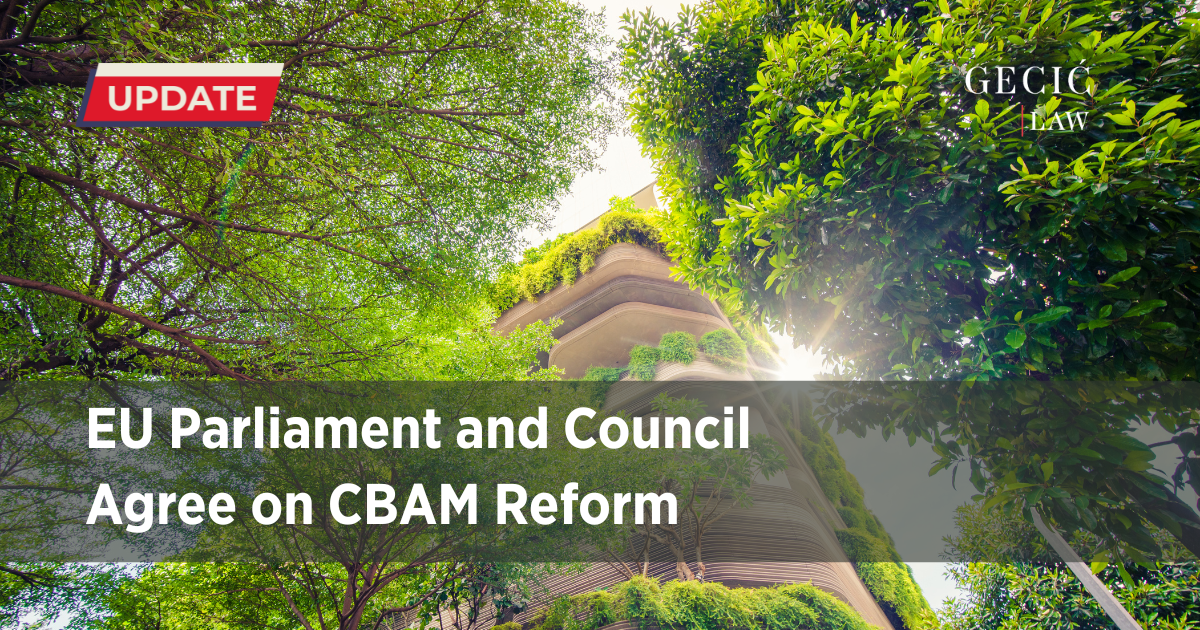
The European Parliament and Council have reached today a provisional agreement to simplify the EU’s Carbon Border Adjustment Mechanism (CBAM). The EU aims to ease administrative burdens while keeping its environmental impact intact. The reform is part of the broader “Omnibus I” legislative package, introduced on 26 February 2025, aimed at making EU laws more business-friendly, especially for small and medium-sized enterprises (SMEs). This reform further aligns with broader EU goals to boost global competitiveness, as outlined in the Commission’s “Competitiveness Compass”, and to reduce administrative burdens by 25% for all companies and 35% for SMEs. A New De Minimis […]
Details
The European Union is set to implement significant changes to the General Data Protection Regulation (GDPR) as part of its ongoing effort to reduce regulatory burdens on businesses while maintaining robust data protection standards. These proposed amendments, part of the Commission’s fourth Omnibus package, represent the most substantial review of GDPR since its implementation in 2018. Key Changes to GDPR on the Horizon The centerpiece of the proposed reforms involves expanding exemptions from record-keeping obligations under Article 30 of the GDPR. Currently, organizations with fewer than 250 employees are exempt from maintaining detailed records of their data processing activities. This […]
Details
We are proud to announce that Bogdan Gecić, Founding Partner of Gecić Law, has been named Vice President of the Harvard Law School Association of Europe (HLSAE). His appointment follows two successful terms as an HLSAE Board Member. It further reflects his long-standing commitment to building bridges within the legal community across Europe and beyond. As Vice President, Bogdan will help lead one of the world’s most active Harvard Law School alumni associations and contribute to its continued growth and impact. Championing the HLSAE Community in Europe Bogdan’s engagement with HLSAE has been meaningful and far-reaching. During his service as […]
Details
The European Council has formally adopted its negotiating position on the European Commission’s proposal to amend Regulation (EU) 2023/956, better known as the Carbon Border Adjustment Mechanism (CBAM). This marks a significant step in the EU’s legislative process as the Council prepares to enter interinstitutional negotiations with the European Parliament. The aim is to simplify the CBAM framework, alleviate burdens on importers—especially SMEs—without compromising its climate integrity. The move follows a strong political mandate expressed in key EU strategic documents, such as the Letta and Draghi reports and the Budapest Declaration, calling for a “simplification revolution” across EU legislation. The […]
Details
In a significant step toward balancing environmental ambition with economic practicality, the European Parliament has backed today reforms to streamline the EU’s Carbon Border Adjustment Mechanism (CBAM). The proposals are part of the European Commission’s broader “Omnibus I” simplification package introduced earlier this year, reflecting the EU’s intent to enhance administrative efficiency without compromising its climate targets. The revised rules aim to ease the compliance burden on small and medium-sized enterprises (SMEs) by introducing a de minimis threshold of 50 tonnes. This change would exempt about 90% of importers, particularly smaller and occasional ones, from CBAM obligations—while still covering 99% […]
Details
On May 12, 2025, the Russian Federation formally launched consultations at the World Trade Organization (WTO) against the European Union’s Carbon Border Adjustment Mechanism (CBAM). This concurrently marks the first major legal challenge to CBAM, the EU’s flagship climate-trade instrument. Russia argues that CBAM violates core WTO rules. It claims that the regulation protects EU industries under the guise of climate action. The dispute therefore raises critical questions about the legality of linking trade and climate policy. Russia’s Core Claims Russia calls CBAM a disguised restriction on trade, saying the mechanism burdens non-EU exporters with complex rules and extra costs. […]
Details
The European Parliament’s Committee on International Trade (INTA) gave backing to the European Commission’s plan to simplify the Carbon Border Adjustment Mechanism (CBAM), as part of the Omnibus I legislative package. The vote took place during an extraordinary session on April 23, 2025. A significant majority of MEPs supported the proposal and rejected proposed amendments. What Did INTA Approve? INTA endorsed a set of changes designed to ease the administrative burden of CBAM. These simplifications aim to help businesses comply while preserving the system’s environmental goals. Key proposed changes include: Exemption for Small ImportersImporters handling less than 50 tonnes […]
Details
The European Commission has introduced a new legislative package aimed at simplifying sustainability and investment regulations. In the latest Competitiveness Compass we recently covered, the Commission outlined its strategy to enhance the EU’s economic prosperity and competitiveness. Known as Omnibus I and Omnibus II, these reforms are designed to cut administrative burdens, enhance business competitiveness, and maintain the EU’s commitment to sustainability goals. The key areas affected include the Corporate Sustainability Reporting Directive (CSRD), the Corporate Sustainability Due Diligence Directive (CSDDD), the Carbon Border Adjustment Mechanism (CBAM), and the InvestEU Regulation. By streamlining compliance, the EU hopes to make regulatory […]
Details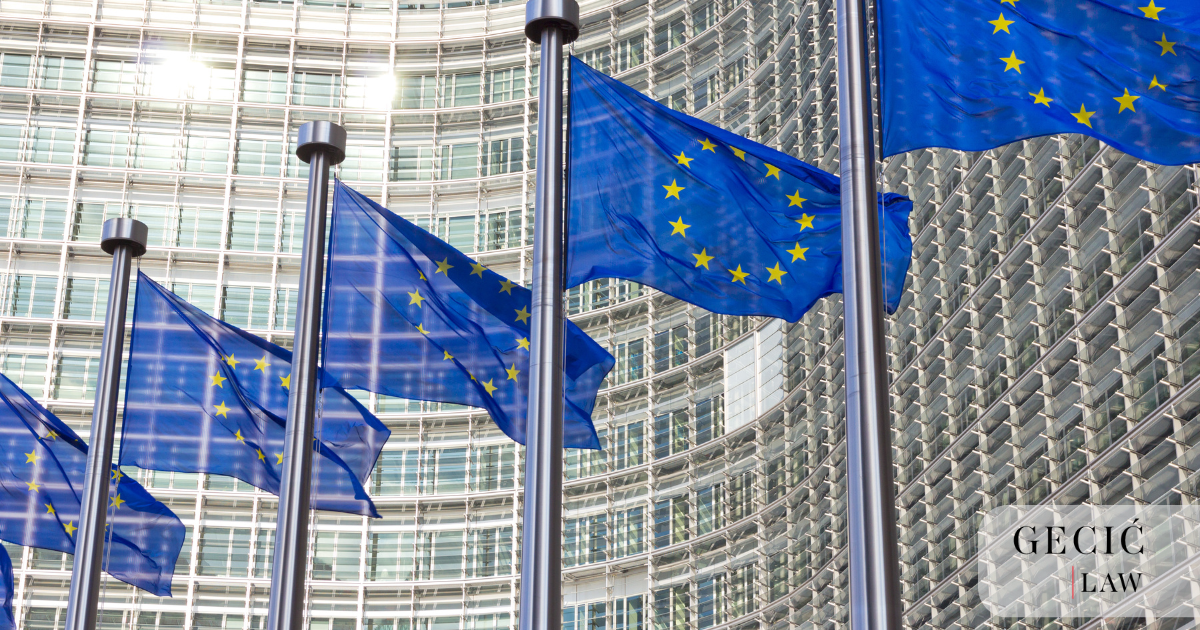
In an era of rapid technological advancements, geopolitical uncertainties, and climate imperatives, the European Union has recently introduced the Competitiveness Compass. This is a strategic framework to enhance its economic resilience and global standing. European Commission President Ursula von der Leyen announced the initiative at the World Economic Forum in Davos. It aims to address inefficiencies, boost innovation, and drive sustainable growth while ensuring the EU remains attractive for business and investment. A Holistic Approach to Competitiveness The Competitiveness Compass focuses on four core pillars: innovation, decarbonization, security, and reducing bureaucratic hurdles. These elements reflect the EU’s belief that prosperity […]
Details
The European Union’s Carbon Border Adjustment Mechanism (CBAM) is undergoing a major simplification – and it’s big news for businesses in the Western Balkans and around the world. CBAM, a cornerstone of the EU’s Green Deal, is designed to put a carbon price on imports of carbon-intensive goods. This helps prevent “carbon leakage” – the shift of production (and emissions) to countries with looser climate rules – and protects EU industries from unfair competition. But while the environmental goal is clear, CBAM’s complex rules raised concerns for businesses both inside and outside the EU. Now, recent moves to simplify CBAM’s […]
Details
Serbia has taken a bold step by amending its Energy Act, lifting a decades-long moratorium on nuclear energy. This marks a pivotal moment in the country’s energy policy, aligning its strategies with the European Union’s commitment to sustainability and decarbonization. The move opens new opportunities for innovation, investment, and collaboration, positioning Serbia as a key player in the regional energy transition. EU’s stance on Nuclear Energy The European Union (EU) has long prioritized renewable energy and consistently provided support and incentives to encourage the transition to cleaner energy sources. This commitment extends to nuclear energy, officially classified as sustainable under […]
Details
Artificial intelligence (AI) is transforming industries and everyday life, but with its rapid development comes new challenges, especially when things go wrong. The European Union has introduced new rules to make it easier to claim compensation in the event of AI liability. The new regulations clarify the responsibility of AI system manufacturers and others under certain conditions. Considering AI systems’ unpredictable nature and development, this is indeed a significant step forward. It certainly represents a significant progress in fully incorporating AI into everyday life. Making It Easier to Hold AI Manufacturers Accountable The newly updated Product Liability Directive aims to […]
Details
Last week, the European Council adopted new legislation to regulate Environmental, Social, and Governance (ESG) ratings providers. This marks a significant step in enhancing the transparency, reliability, and accountability of ESG ratings, which have become crucial in sustainable finance and investment decision-making. The regulation addresses the increasing demand for trustworthy ESG data amid criticisms about the sector’s lack of oversight and uniformity. Key Features of the Regulation Supervision by ESMA Under the new rules, ESG ratings providers operating in the EU must obtain authorization from the European Securities and Markets Authority (ESMA). This requirement also extends to providers outside the […]
Details
The European Commission recently launched the consultation phase on two essential draft regulations to strengthen the EU Carbon Border Adjustment Mechanism (CBAM) regulation’s operational structure. These include the draft Implementing Regulation for Authorized Declarants and creating a comprehensive CBAM registry. Stakeholders can submit feedback until November 28, 2024. These regulations clarify key aspects of the definitive CBAM implementation, set to begin on January 1, 2026. Draft Implementing Regulation for Authorized Declarants Starting January 1, 2026, all importers of goods within the CBAM scope must qualify as Authorized CBAM Declarants. This therefore includes importers of cement, iron and steel, aluminum, fertilizers, electricity, […]
Details
In a landmark EU’s General Court’s ruling, Google successfully overturned a 1.5 billion euros fine imposed by the European Commission (EC) in 2019. The fine was tied to allegations that Google abused its dominant position in online advertising through its AdSense platform. The EC claimed that Google restricted third-party websites from displaying ads from competitors, a practice that allegedly stifled competition. The Case The case revolved around Google’s AdSense for Search, where the company had exclusive agreements with websites, preventing them from using rival ads. The EC argued this restricted competition in the online search advertising market. Google, however, maintained […]
Details
The recent case before the Court of Justice of the European Union (“CJEU”) could shake the world of football governance, urging FIFA to change its regulations. Defining the player-clubs’ relations was never an easy task. However, the football industry is continuously growing. FIFA, the sport’s governing body, implemented multiple rules to regulate the status and transfers of professional football players. However, specific articles of those regulations could contradict the EU principles of Competition Law and Freedom of Movement. Advocate General Maciej Szpunar published his opinion on this case, suggesting that specific articles potentially contradict the EU law. The case revolves […]
Details
The Council of Europe has adopted the world’s first international convention on artificial intelligence (“AI”) titled “Council of Europe Framework Convention on Artificial Intelligence and Human Rights, Democracy and the Rule of Law” (“Convention”), marking a significant step towards regulating AI technologies. The Convention is legally binding. Consequently, it ensures AI systems respect human rights, democracy, and the rule of law throughout their lifecycle. It includes provisions for transparency, accountability, and independent oversight, addressing potential risks and promoting responsible AI innovation. The Convention aims to create a balanced framework that encourages technological advancement while safeguarding fundamental freedoms and democratic values. […]
Details
The inaugural meeting of the informal Expert Group on the Carbon Border Adjustment Mechanism (CBAM) took place online on April 23, 2024. Hosted by the Directorate-General for Taxation and Customs Union (DG TAXUD), the meeting marked the beginning of a collaborative effort to guide the implementation of CBAM during its transitional phase and the definitive period, which is set to commence on January 1, 2026. The expert group comprises representatives from EU Member States, industry associations, NGOs, civil society, observers from third countries and international organizations. The session began with a welcome from DG TAXUD, acknowledging the participants’ commitment to […]
Details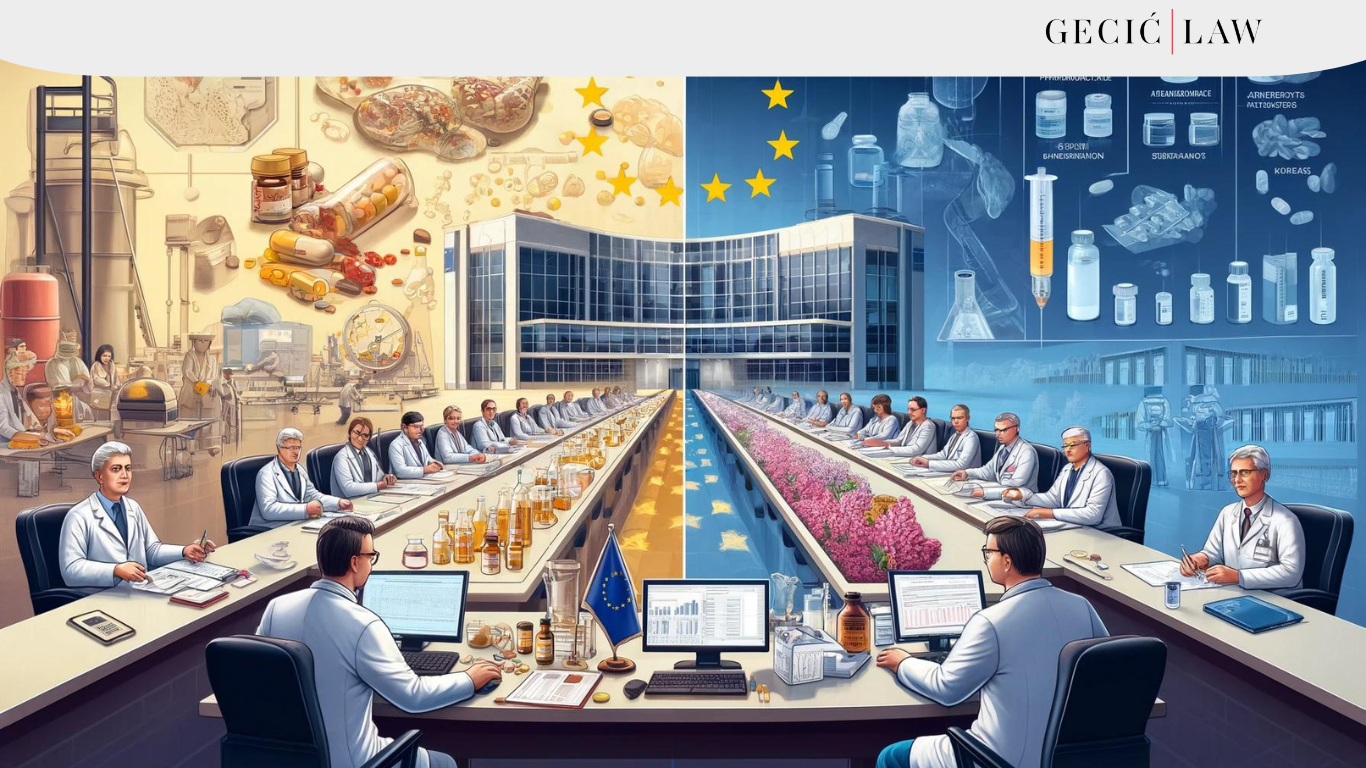
Introduction to Medicine Marketing Authorization The pharmaceutical industry ranks among the most profitable sectors globally. In 2023, its estimated global value reached USD 1.6 trillion. This industry also plays a crucial societal role, given the importance of medicines and public health. Consequently, it faces strict regulations. This article explores the conditions for marketing medicines in Serbia. It also highlights regulatory similarities between Serbia and the European Union in this area. Obtaining a Marketing Authorization in Serbia To address this question, we first need to define what a medicine is. A medicine is a marketable product characterized by specific strength, pharmaceutical […]
Details
The ESG Adria Summit 2024, held in Tivat, Montenegro, successfully concluded its two-day agenda, leaving attendees enriched with insights on sustainable practices and technological innovations aimed at a sustainable future. This year’s theme, “Act Now for a Sustainable Tomorrow,” underscored the urgency of adopting strategies that align with ESG principles. Day 1 Highlights: AI at the Forefront of Sustainability The summit kicked off with powerful opening remarks from local dignitaries and ESG leaders. This set the stage for a series of discussions that intertwined sustainability with pioneering technologies and policies. Sessions on renewable energy funding and sustainable urban futures ensued. […]
Details
After numerous delays, the European Parliament gave the green light today for the Corporate Sustainability Due Diligence Directive (CSDDD). This directive aims to hold companies accountable for any environmental or human rights violations in their supply chains. However, the final version of the CSDDD has been significantly watered down from its original proposal, much to the dismay of sustainability advocates. The CSDDD, also known as the CS3D, sets out a standard for corporate due diligence on sustainability in the EU. This primarily involves environmental and human rights concerns. Under the new rules, companies are responsible for their own actions and […]
Details
Intro In a historic ruling, the General Court (GC) has upended a significant European Commission (Commission) Decision, accusing the BEH Group of leveraging its dominant position in Bulgaria’s gas supply market. This landmark gas market case is unprecedented as it represents a full annulment of Article 102 TFEU decision, underscoring the meticulous scrutiny applied by the GC in its assessment of competition law matters. At the heart of this legal saga is the Bulgarian Energy Holding (BEH), a state-owned entity boasting key subsidiaries like Bulgargaz and Bulgartransgaz, which play pivotal roles in Bulgaria’s energy sector. These two entities were the […]
Details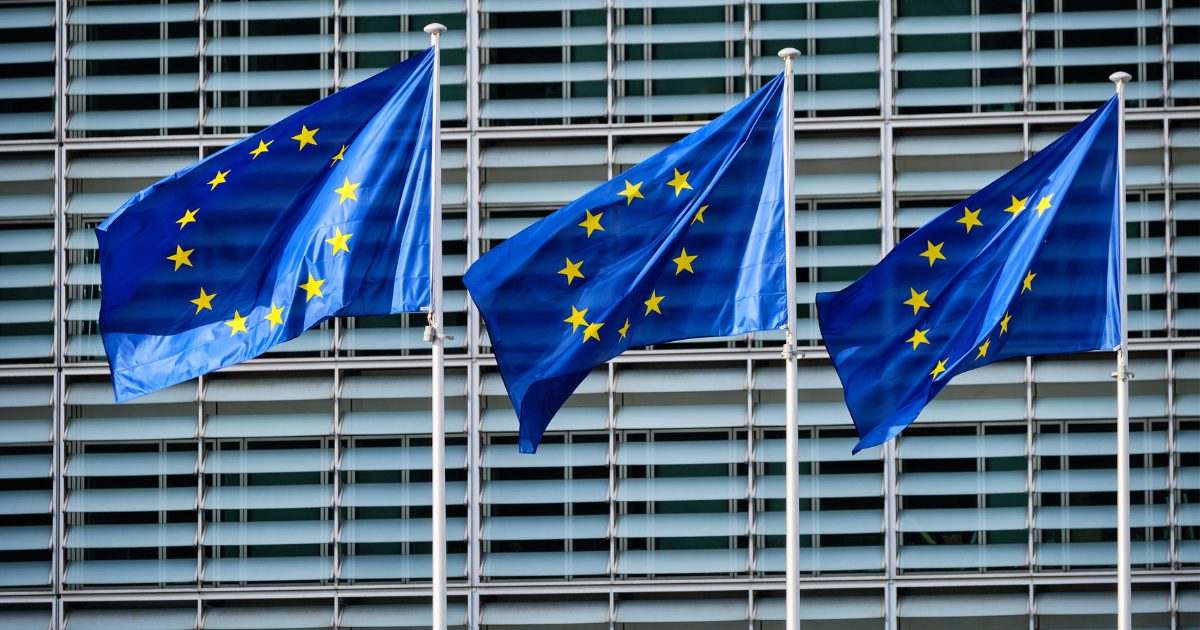
The European Union’s Corporate Sustainability Due Diligence Directive (CSDDD) has faced escalating challenges since its final draft release on January 20. Despite weeks of uncertainty and concerns over the proposal’s fate, supporters were buoyed by the European Council’s unexpected decision to schedule a vote for February 28. However, optimism quickly waned as the vote failed to garner sufficient support. This cast doubt on the CSDDD’s revival before the March 15 deadline for approval by the European Parliament. The Directive The CSDDD, also called the CS3D, aims to establish a corporate due diligence standard on sustainability issues within the EU. The […]
Details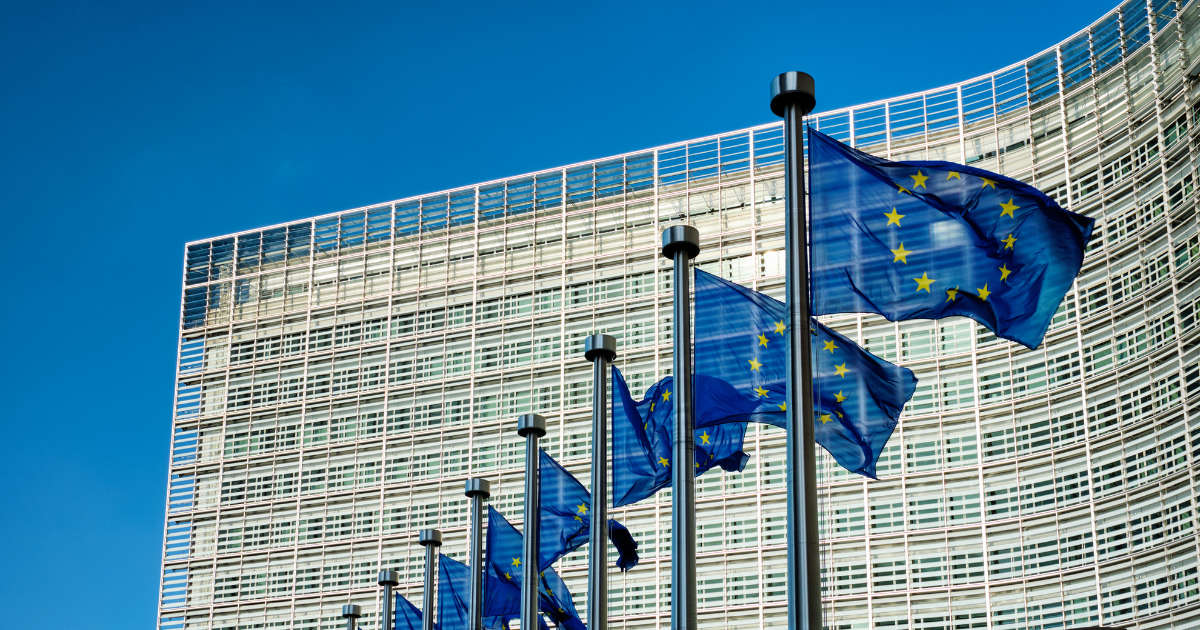
On February 8, 2024, the European Commission (“EC”) unveiled an updated Market Definition Notice (“the Notice”). The revision plays a crucial role in the EC’s approach to assessing mergers and antitrust cases by delineating the competitive boundaries and assessing the market power of companies. The Notice extends beyond EU Member States, mandating compliance from Western Balkan countries (“WBs“) aligned with the EU competition law acquis. Namely, all WBs, through the Stabilization and Association Agreements, have committed to enforce the criteria derived from the implementation of competition rules applicable in the EU, in particular from famous Articles 101, 102, 106 and […]
Details
In a landmark accomplishment, the collaborative efforts of Gecić Law’s ESG and EU Law teams, alongside Shibolet & Co.’s Environment, Sustainability & Climate Change team, in partnership with Sher Consulting & Training, have led to a significant milestone. This achievement marks the successful submission of the first CBAM reports from Israel in accordance with the EU’s new CBAM (Carbon Border Adjustment Mechanism) regulation. This groundbreaking collaboration supports Israeli aluminum, steel, and iron exporters, addressing the challenges of a new era in environmental accountability. Importers successfully submitted their first CBAM reports, covering the fourth quarter of 2023, by the January 31, […]
Details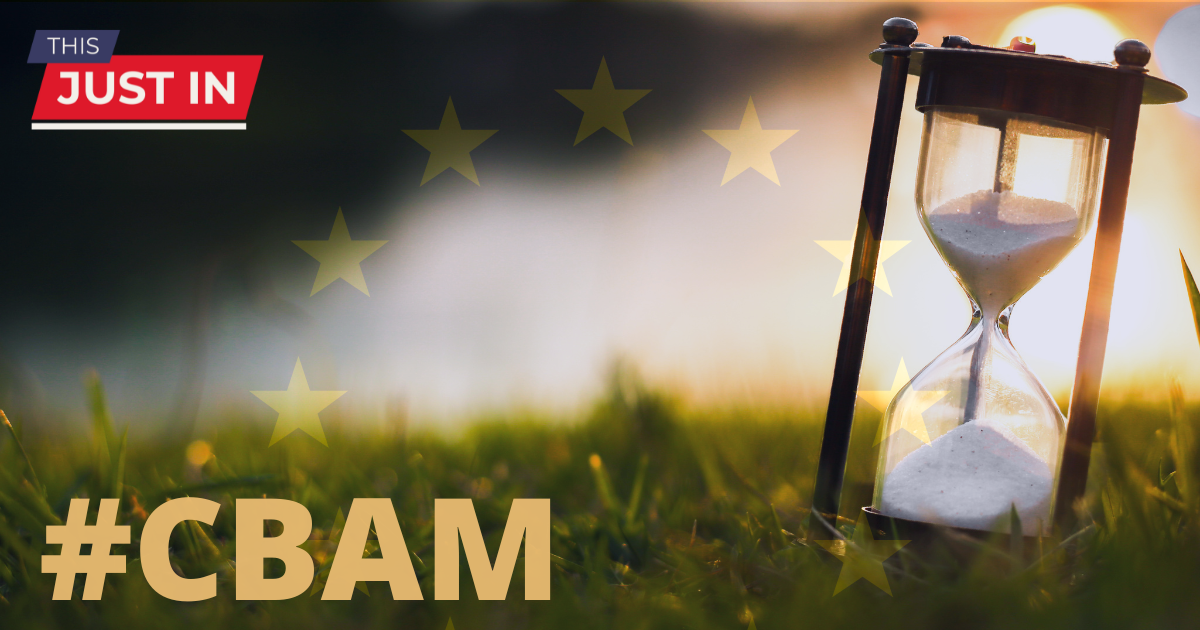
In latest CBAM news, the European Commission has acknowledged significant technical difficulties impacting businesses for the EU Carbon Border Adjustment Mechanism (CBAM) reporting. These issues stem from a technical malfunction affecting several EU customs systems, including ICS2 and the CBAM Registry. To support declarants facing challenges in CBAM reporting, the Commission has introduced measures to facilitate the process. Starting from February 1, a new feature in the Transitional Registry will allow affected businesses to “request delayed submission”. This provision grants an additional 30 days for submitting their quarterly CBAM report. The Commission has assured that no penalties will apply for […]
Details
In an era where businesses are increasingly attuned to their environmental and social footprint, the European Union has ushered in a transformative era by introducing the Corporate Sustainability Due Diligence Directive (CSDDD). Anticipated to take effect in 2024, this groundbreaking legislation is poised to reshape the landscape for companies operating within the EU and beyond its borders. At its essence, the CSDDD compels large companies to: Identify, prevent, and alleviate potential adverse impacts on human rights and the environment across their entire value chain, encompassing subsidiaries, suppliers, and downstream partners. Institute a due diligence process integrating risk assessment, grievance mechanisms, […]
Details
The European Union (EU) has recently made another significant advancement in its commitment to reducing carbon emissions by reaching a provisional agreement on stringent regulations to reduce emissions from trucks, buses, and trailers. These heavy-duty vehicles (HDVs) are known to be substantial contributors to harmful emissions. With the implementation of these new rules, there will be a significant shift towards cleaner and more eco-friendly transportation. What’s changing? Starting in 2030, new HDVs will have to emit 45% less carbon dioxide (CO2) compared to 2019 levels. This target becomes even more ambitious in 2035, with a 65% reduction in CO2 emissions […]
Details
New rules Fédération internationale de football association (“FIFA”), with its prerogatives in creating the legal framework for the game of football, enacted new changes in their FIFA Football Agent Regulations (“FFAR”). To create a more transparent, efficient, and just system, the new regulations aim to reinforce contractual stability, protect the integrity of the transfer system, and achieve greater financial transparency. However, some of the introduced provisions may potentially violate competition laws, leading to a reluctance among many countries to incorporate the FFAR into their national regulations. With many court proceedings in various national courts from England to Brazil and before […]
Details
In a move to learn more about emerging digital markets, the European Commission today launched calls for contributions focused on virtual worlds and generative AI. These initiatives represent a step by the Commission to understand the competitive dynamics in these rapidly evolving sectors. The Commission has reached out to various stakeholders, requesting information to gain a comprehensive view of the current state of competition in these innovative fields. Players from all corners of the industry, including developers, consumers, and academic experts, will indeed share their experiences and insights. Virtual Worlds: A New Competitive Landscape Virtual worlds, characterized by their persistent, […]
Details
An (Un)expected Oligopoly At the end of October, the Belgian Competition Authority (L’Autorité belge de la Concurrence) (“ABC”) released an opinion on the state of competition in Belgium’s retail banking market (the “Opinion”). The Opinion revealed that the retail banking market in Belgium is an oligopoly. Four banks dominate the market: BNP Paribas Fortis, KBC, Belfius, and ING. As an oligopoly, the retail banking market exhibits specific characteristics. These include similar services on offer and frequent interactions between banks, facilitating coordination among the most prominent market participants and reducing competition. The most obvious example of services with identical commercial terms […]
Details
What is the Digital Markets Act? The EU Digital Markets Act (DMA) is meant to make digital markets fairer and more competitive. How DMA does this is simple: the European Commission designates the “gatekeepers” (mostly the big tech companies), imposing on them new obligations such as mandatory interoperability of gatekeeper’s services and preventing the gatekeeper from favoring its products and services against similar services or products offered by third parties on the gatekeeper’s platform. A quick repeat of what it takes for a company to be a gatekeeper: strong economic position, significant impact on the internal market, and being active […]
Details
Gecić Law is honored to announce that our esteemed colleague and counsel, Branko Gabrić, will share his specialist knowledge during an upcoming interactive global webinar on the European Union’s new Carbon Border Adjustment Mechanism (CBAM) regulation. The prestigious global legal network TerraLex presents the event “The Impact of the Carbon Border Adjustment Mechanism.” Branko will be in the company of illustrious speakers, including Assunção Cristas, Head of Environment at Vieira de Almeida, and Nithya Nagarajan, Partner at Husch Blackwell. The event aims to discuss the implementation of CBAM, a groundbreaking initiative by the European Union. The mechanism entered its transitional phase […]
Details
Bogdan Gecić, Founding Partner at Gecić Law, recently spoke to Euractiv Serbia and shared his insights on the critical changes in international trade likely to ensue as a result of the European Union’s groundbreaking Carbon Border Adjustment Mechanism (CBAM) regulation. The regulation entered its transitional phase on October 1, 2023. Moreover, Bogdan detailed the ramifications for businesses. The article is titled “CBAM: Why is It Important and What Do We Need to Know?” The article clearly explains the motivation and reasoning behind this unique regulation. With the CBAM, the EU pioneers the world’s first carbon border tax on imports into […]
Details
Bogdan Gecić, the Founding Partner of Gecić Law, recently spoke with journalist Paddy Bolton. He was thereafter quoted in a Brussels Signal article regarding the EU’s Foreign Subsidies regulation (FSR) and its application in football. Spain’s top football division has filed a complaint with the European Commission (EC) against France’s Paris Saint-Germain (PSG). They argue that PSG’s funding from Qatar violates the EU’s rules on foreign subsidies. Similarly, Belgian football club Royal Excelsior Virton has raised objections about Lommel SK, which receives Abu Dhabi funds. The Foreign Subsidies Regulation (FSR) and Football These interventions come after the EU’s FSR came into […]
Details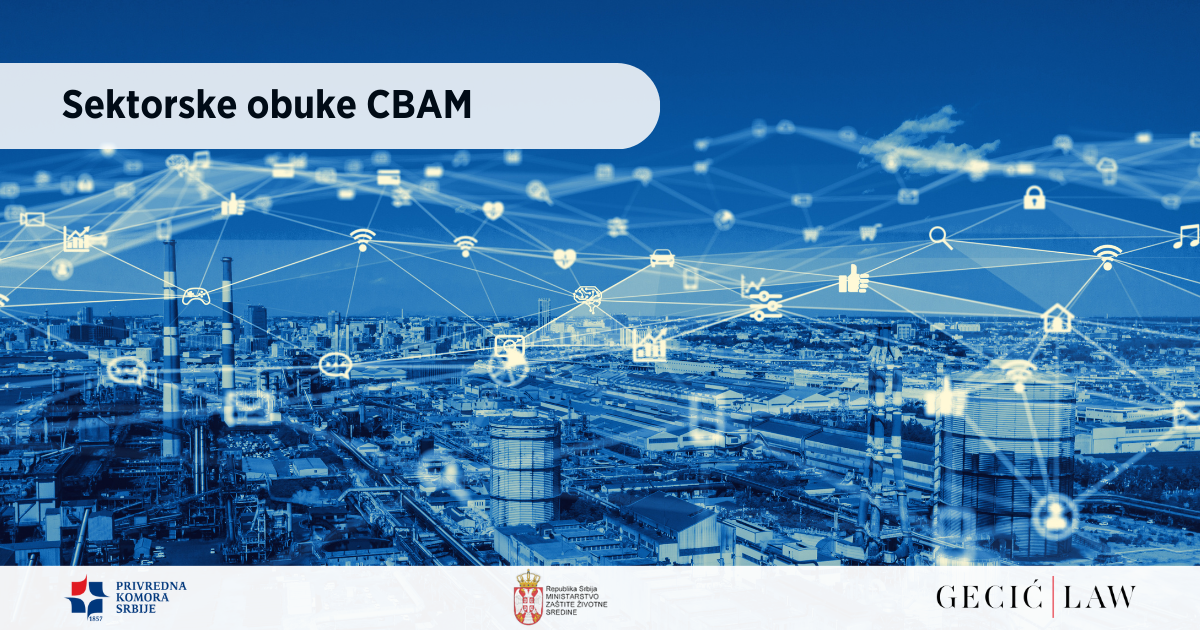
Gecić Law experts will participate in multiple sectoral training sessions on the EU’s new Carbon Border Adjustment Mechanism (CBAM) in October and November. The Ministry of Environmental Protection and the Chamber of Commerce of Serbia initiated the training program within the Swiss Program on Capacities for Trade Policies (C4TP) framework. CBAM training sessions will hence take place in several cities in Serbia during the next two months. These sessions are particularly tailored to the economic sectors affected by the CBAM regulation. First CBAM Training Session on Fertilizers On Monday, the program started its first full-day workshop at the Chamber of […]
Details
In recent times, the European football landscape has witnessed a significant transformation. The changes have been catalyzed by an unexpected influence – financial subsidies pouring in from Qatar and the United Arab Emirates (UAE). These subsidies have not only captured the attention of football enthusiasts but have also raised concerns within the European Union (EU) regarding their impact on the continent’s football market. This article will explore these concerns’ intricacies, focusing on how the EU Foreign Subsidies Regulation (FSR) intersects with the football world. The Complaints It all started with the complaints from football national leagues in Europe. One of […]
Details
Bogdan Gecić, the Founding Partner of Gecić Law, recently spoke with journalist Paddy Bolton. He was thereafter quoted in a Brussels Signal article regarding the significant changes coming up with the European Union’s pioneering Carbon Border Adjustment Mechanism (CBAM) regulation. The European Union (EU) has begun a transitional phase for implementing CBAM, effective October 1. This initiative, part of the European Green Deal, aims to reduce carbon emissions by taxing carbon-intensive imports. The article discusses the possible implications of CBAM. Boston Consulting Group predicts this could increase the average car price in the EU by approximately EUR 600. This is […]
Details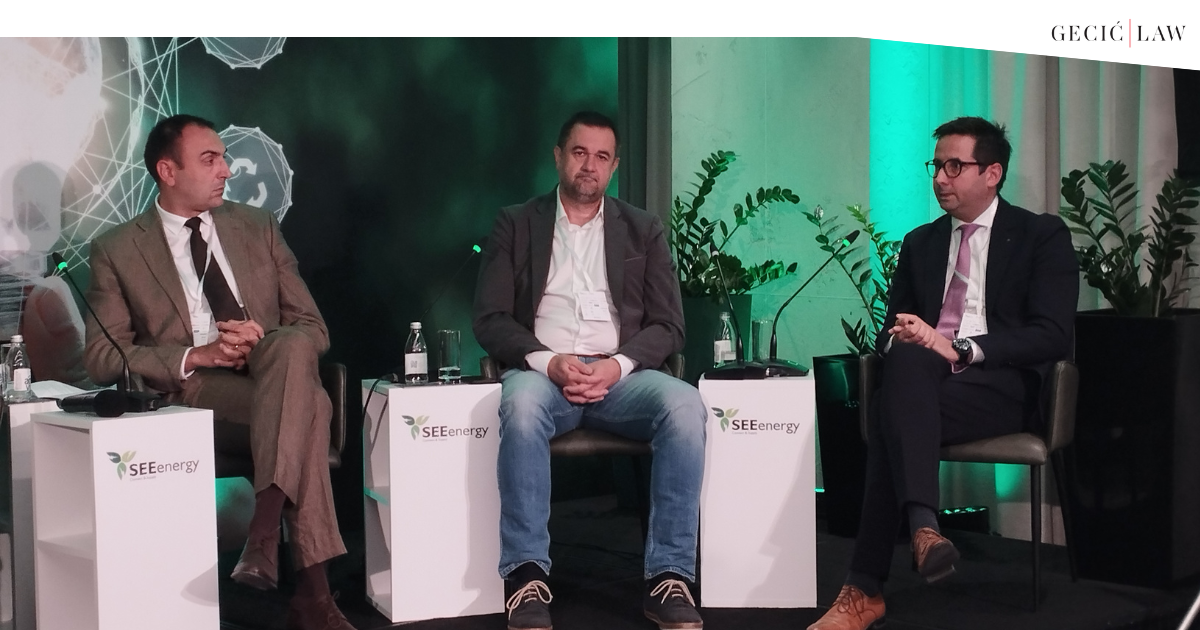
The SEEenergy conference kicked off this morning with an exciting panel on Decarbonization in the economy. Our colleague Branko Gabrić sparked great interest as he spoke about the EU’s Carbon Border Adjustment Mechanism (CBAM). The discussion was timely as the new regulation took effect on October 1. The code will introduce significant changes, especially for a specific group of carbon-intensive industries. The energy sector is consequently among the most significantly affected. Panel Discussion on Decarbonization in Industry The distinguished panelists hailed from companies in diverse industries, including Henkel, ABB Group, Schneider Electric, Energy Net, and Viessmann. They shared their views on Decarbonization and specific […]
Details
From this Sunday, October 1, the European Union (EU) will start implementing the Carbon Border Adjustment Mechanism (CBAM) in its transitional phase. This regulation reflects the EU’s commitment to mitigating carbon leakage as part of the Fit for 55 Agenda. It aims to harmonize carbon costs between local and imported products. CBAM should also galvanize global industries towards adopting greener technologies. Initially, this mechanism will include cement, aluminum, steel, electricity, hydrogen, and fertilizer imports. From now on, importers must submit quarterly reports on greenhouse gas (GHG) emissions in production. Data collection starts in the last quarter of 2023, with the […]
Details
We are pleased to announce that Gecić Law will proudly join the sixth regional SEEenergy conference. This year’s event will take place in Novi Sad from October 2 – 3. It will explore new challenges in energy transition, including decarbonization, energy storage, and the market. At the conference, Gecić Law will share its expertise on the latest developments in EU law and their likely impact on businesses and economies of the region. EU’s Carbon Border Adjustment Mechanism (CBAM) takes effect on October 1. The regulation will introduce significant changes, especially for a specific group of carbon-intensive industries. The energy sector […]
Details
The European Union has formally unveiled today specific rules for importers on implementing the world’s first carbon border tax. These guidelines in the form of its Implementing Regulation were published today in the EU’s official journal, highlighting the processes to be followed by EU importers in light of the Carbon Border Adjustment Mechanism (CBAM) during its transitional phase. The Carbon Border Adjustment Mechanism is a groundbreaking initiative by the European Union. CBAM aims to level the playing field between EU producers who bear carbon pricing costs and foreign producers who don’t face these charges. It discourages businesses from seeking cheaper […]
Details
August 25, 2023, marks a monumental shift as the Digital Services Act (“DSA“) takes center stage, impacting industry giants like Amazon, Google, Apple, and TikTok. With 19 platforms and search engines, each having a minimum of 45 million users, the DSA takes action to uphold data privacy, combat disinformation, and eliminate online hate speech. This dynamic legislation aims to give users, including minors, enhanced rights and control over their online presence, fostering a high level of privacy and security. What’s the story? Back on April 25, 2023, the first designation decisions were made, designating very large online platforms (“VLOPs“) and […]
Details
Bogdan Gecić, Founding Partner at Gecić Law, was featured in eKapija for his insights on the immanent and profound transformation in both environmental and international trade regimes, propelled by the European Union’s groundbreaking Carbon Border Adjustment Mechanism (CBAM) regulation. As the CBAM takes effect on October 1, 2023, Bogdan detailed his insights for eKapija. The article is titled “The Revolutionary New EU Carbon Import Tariff: What Do You Need to Know?” The article explains the motivation and reasoning behind this unique regulation. With the CBAM, the EU pioneers the world’s first carbon border tax on imports in the EU. Accordingly, […]
Details
Introduction The European Union has initiated the world’s first carbon border tax, known as the Carbon Border Adjustment Mechanism (CBAM), in a strategic move to tackle the mounting concerns of climate change. The CBAM is designed to level the competitive landscape, ensuring that EU companies, which are already bearing the cost of their carbon emissions, remain on equal footing with enterprises originating from nations with minimal or no carbon emission charges. While the Carbon Border Adjustment Mechanism (CBAM) stands as a significant development in the realm of climate policy, its ramifications extend beyond environmental considerations, reshaping the contours of international […]
Details
On July 4, the EU Commission introduced a new Procedural Regulation aimed at enhancing cooperation among data protection authorities (“DPAs“) when enforcing the General Data Protection Regulation (“GDPR“) in cross-border cases. The Procedural Regulation focuses on establishing clear guidelines for DPAs handling cases involving individuals in multiple Member States without impacting any substantial elements of the GDPR, including the rights of data subjects, obligations of data controllers and processors, or the lawful grounds for processing personal data. A notable aspect of the Procedural Regulation is a provision that mandates the lead DPA to share a “summary of key issues” with […]
Details
With technological advancements changing both how antitrust laws are enforced and how undertakings violate competition laws, the fourth industrial revolution and the rapid growth of AI continue to affect this area of law, as many others. It is impossible to ignore the potential for AI to conquer markets and its ability to spot and fix basic market balance violations. Despite the benefits of technology for customers, it also threatens their interests by distorting market dynamics and impacting competition. Threat Using AI presents a potential risk as it allows for price collusion through price monitoring and algorithmic matching software. While […]
Details
On Tuesday, the EU Parliament unleashed a legislative game-changer in the global climate battle, adopting the world’s first carbon border tax (CBAM). The MEPs also formally adopted the deals reached with the Council in December 2022 on several other critical pieces of legislation, including the closely-related revised EU’s Emissions Trading System (“EU ETS“) and a new Social Climate Fund (“SCF“), all a vital part of the EU’s Fit for 55 package, designed to help the bloc cut greenhouse-gas emissions by 55 percent by 2030 against a 1990 baseline. The CBAM complements the EU Emissions Trading System (ETS), addressing the phenomenon of […]
Details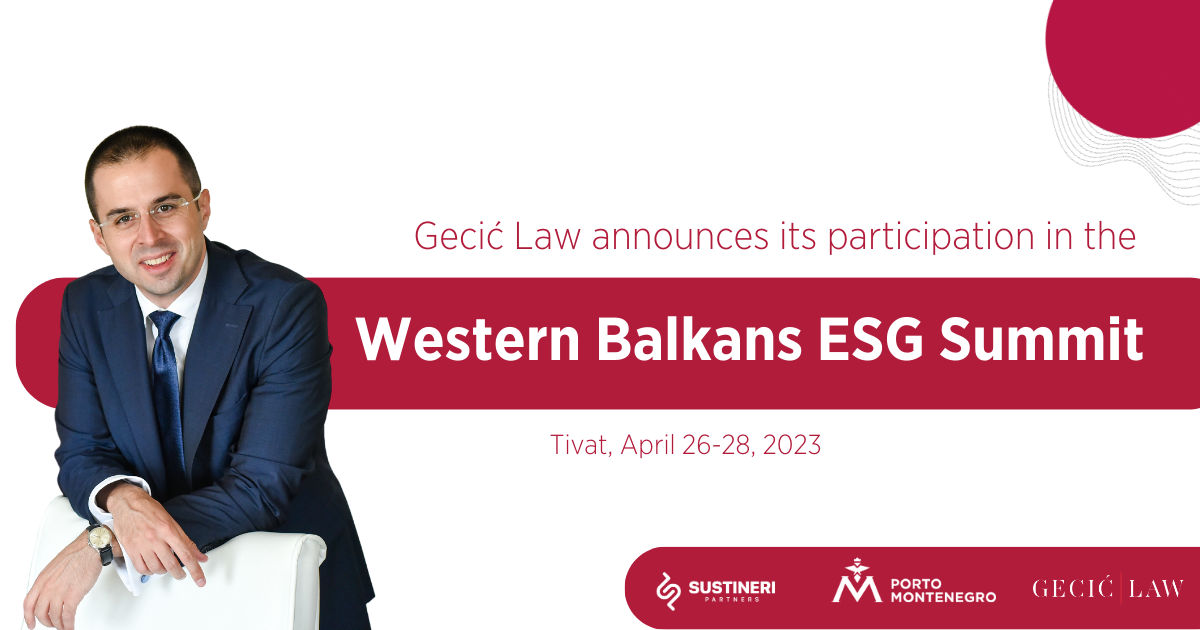
We are pleased to announce that Gecić Law will proudly join the Western Balkans ESG Summit in Tivat, the first major regional event dedicated to Environmental, Social, and Governance (ESG) topics. The summit is scheduled for April 26 – 28, 2023, and will explore ways to promote sustainable development in the Western Balkans. At the summit, Gecić Law will share its widely recognized experience in ESG and sustainability matters as the first independent law firm in the region to launch a dedicated ESG legal practice. This pioneering work and unrivaled EU law expertise offer a unique perspective, valuable in understanding […]
Details
On March 22, 2023, the European Commission adopted a proposal for a new directive to prevent businesses from misleading their customers about the environmental characteristics of their products and services. The proposed Green Claims Directive (“GCD”) aims to provide consumers with valid, comparable, and verifiable information about the environmental impacts of the purchased products. The new rules will regulate various claims made by businesses regarding the environmental aspects or performance of their products or services that are not already targeted by other EU rules. GCD also regulates environmental labels, which provide information on the environmental characteristics of a product or […]
Details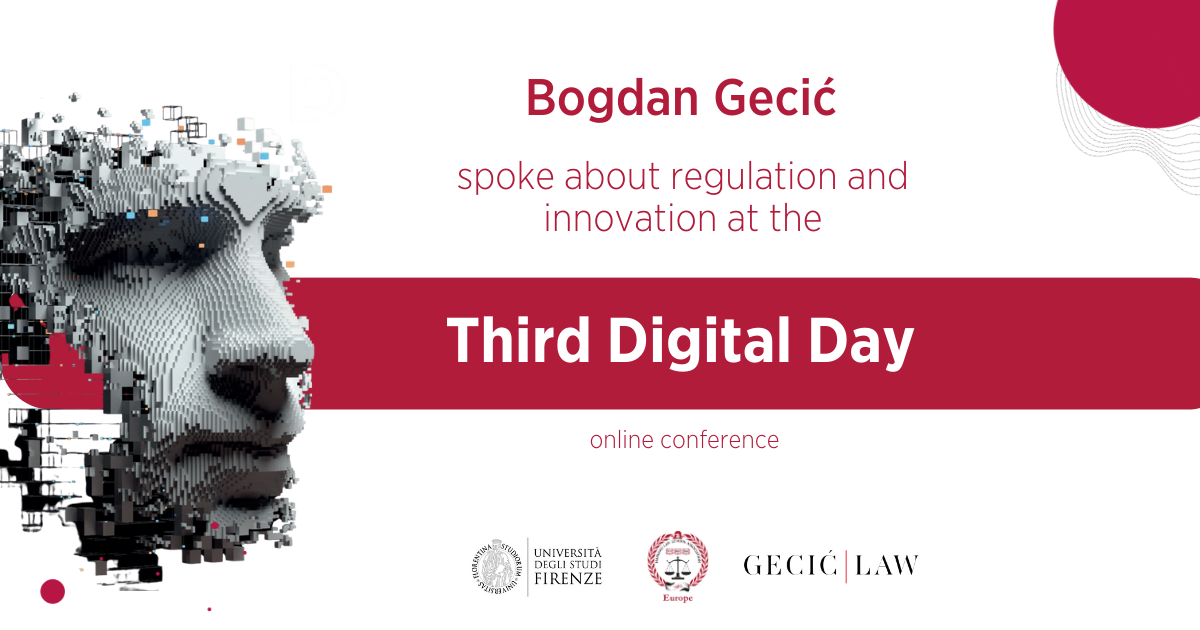
Our Founding Partner, Bogdan Gecić, spoke on Friday at the Third Digital Day online conference organized by Universita Degli Studi Firenze for the third consecutive year on March 10-11, titled “At the Roots of Digitalization: A New or Renewed World.” Bogdan was honored to speak at the opening session of the first day dedicated to regulation in the digital field, moderated by Professor Alessandro Luciano of the Universita Degli Studi Firenze. Carmelo Barbagallo of the Autorita di Supervisione e Informazione Finanziaria, ASIF of the Vatican City delivered the introductory remarks to the session. Insightful presentations were delivered by illustrious speakers […]
Details
In December, the European Commission (“Commission”) issued a Statement of Objections (“SO”) to Facebook’s parent company Meta Platforms Inc. The Commission said that based on its preliminary view, Facebook had violated EU antitrust rules by distorting competition for online display advertising on social media linked to Facebook Marketplace. Marketplace, which Meta launched back in 2016, is a virtual place for Facebook users to discover, buy and sell just about anything, from vehicles, clothes, books, smartphones, and even property, within their local social community. The Commission’s preliminary theory of harm presented in the SO concludes that Meta abused its dominating positions […]
Details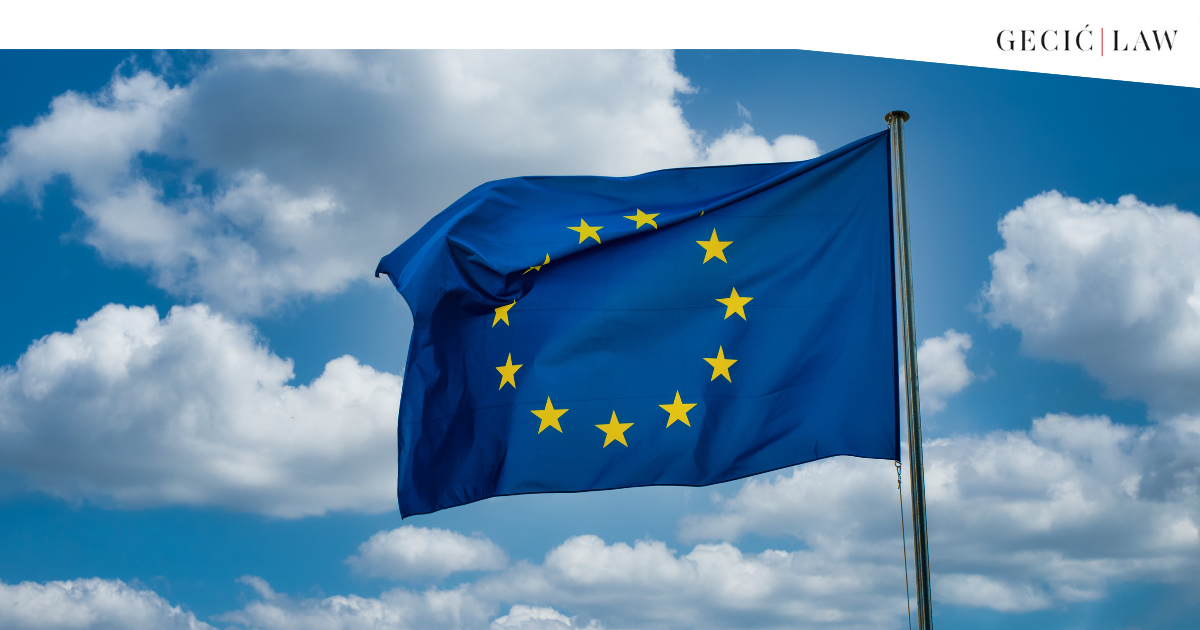
EU and Western Balkans leaders gathered in Albania last December for the EU and Western Balkans Summit to discuss cooperation and EU perspectives of the region. The Tirana Declaration (“Declaration”) was signed between the leaders of the Western Balkans Six and the EU Member States, with representatives of the EU Council and the EU Commission. The document comprises specific initiatives to strengthen regional cooperation in parallel with the EU accession processes. One of the Declaration’s critical topics was the Western Balkans’ commitment to fully implement the Green Agenda and develop a carbon pricing policy in the context of the EU […]
Details
In her keynote speech at the 2023 World Economic Forum in Davos, Ursula von der Leyen, EU Commission President, outlined yesterday the main pillars of the EU’s Green Deal Industrial Plan to boost Europe’s leadership in green technology on its road to carbon neutrality. “We know we have a small window to invest in clean tech and innovation to gain leadership before the fossil fuel economy becomes obsolete,” said von der Leyen. As the plan’s regulatory pillar, she announced a new Net-zero Industry Act to support the “greatest industrial transformation of our times” and keep up with strongly incentivized programs […]
Details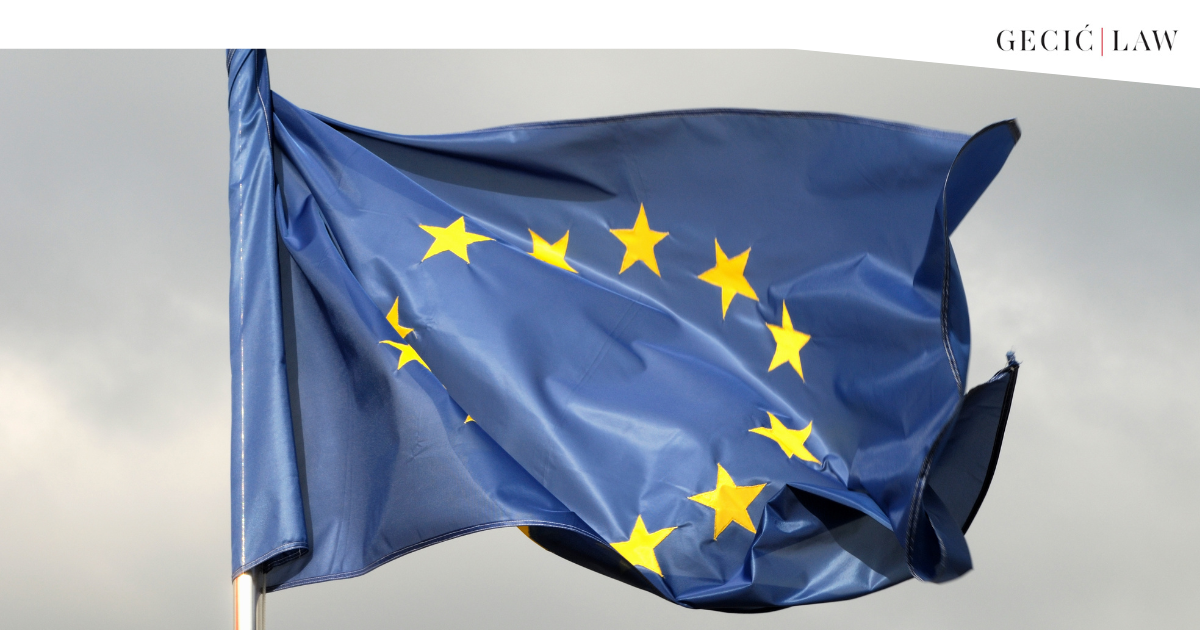
As anticipated for some time in the previous months, while having been agreed upon between the EU institutions, the Foreign Subsidies Regulation (Regulation) finally saw the light of day on January 12, 2023. Its application will commence on July 12, 2023. The Regulation offers new tools for the European Commission (Commission) to investigate financial contributions from non-EU countries to companies operating in the EU to prevent distortions in the internal market. This specific State aid regime provides for an extended application of EU rules and the Commission’s competencies beyond the EU borders. One of the notable features is that the […]
Details
The European Union is fast-tracking the road to a greener future as EU institutions reach provisional agreements on the Carbon Border Adjustment Mechanism (“CBAM”) and the EU Emissions Trading System (“ETS”). After round-the-clock negotiations between EU officials, the “Fit for 55” legislative package with the ultimate goal of reaching carbon neutrality by 2050 is now being finalized. What are the implications for non-EU countries? EU’s Climate Action Recognizing the threats of climate change, the European Union adopted a range of climate laws, which includes the ETS and the CBAM, as part of the revolutionary “Fit for 55” legislative package. In contrast to the […]
Details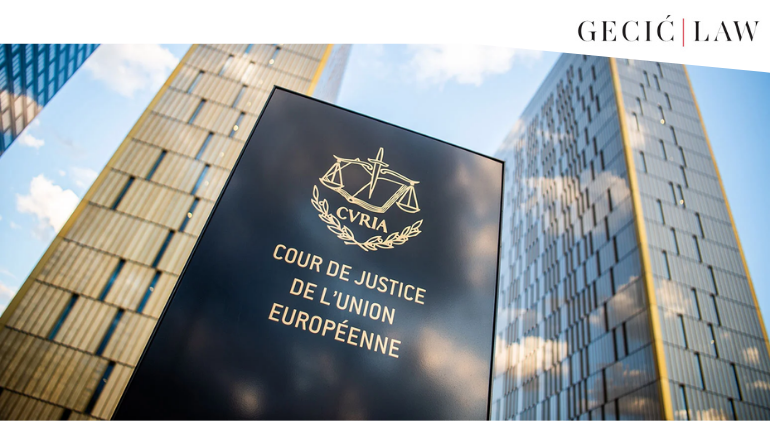
The Judgment of the European Court of Justice (“ECJ“) from November this year raised the issue of compatibility of proclaimed fundamental human rights with public registers of ultimate beneficial owners available to all interested parties (“Judgment“). According to the Fourth Anti-Money Laundering and Terrorist Financing Directive (the “Fourth AML Directive“), all European Union member states were obliged to make public the registers of beneficial owners of companies operating in their countries so that they can be accessed by any person who has a “legitimate interest.” Accordingly, in 2019, Luxembourg passed a law confirming this directive. It established a register of ultimate […]
Details
The European Commission (Commission) continues to work on implementing the Digital Markets Act (DMA). On December 9, 2022, the Commission published a draft regulation on implementing the DMA and annexes. Public consultations are currently underway until January 6, 2023. The Commission would like to consider the input of different publics and take on board their suggestions, comments, and proposals when finalizing this draft regulation. Feedback received will be published on the Commission’s website and must adhere to the rules for input and suggestions. To participate in the public consultation process, interested parties must register. The regulation aims to ensure fair, efficient, and complete […]
Details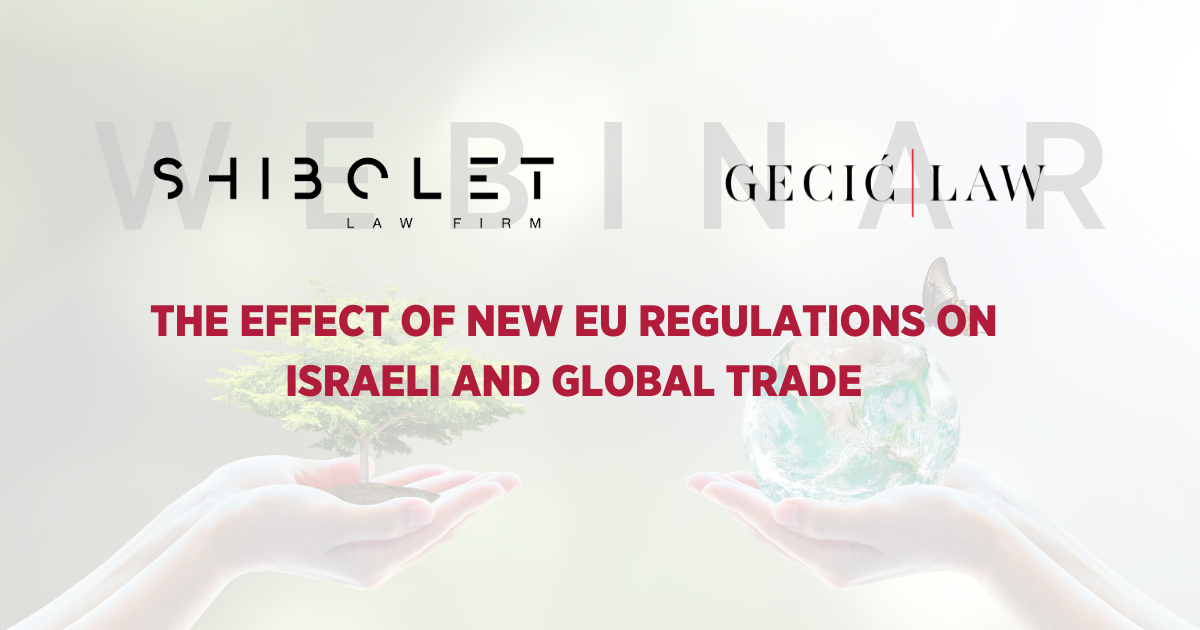
Our Founding Partner, Bogdan Gecić, took part in a webinar organized by the preeminent Israeli law firm Shibolet titled „The Effect of New EU Regulation on Israeli and Global Trade.“ The audience, primarily Israeli businesses in diverse industries, had the opportunity to hear from leading experts in both ESG and EU law and international trade about how the EU’s new ESG regulation may affect trade relations with the EU and what they can do to prepare. Galit Ofer, Partner at Shibolet, introduced the panel and provided an overview of the ESG agenda and the significance of EU-Israel trade relations. She […]
Details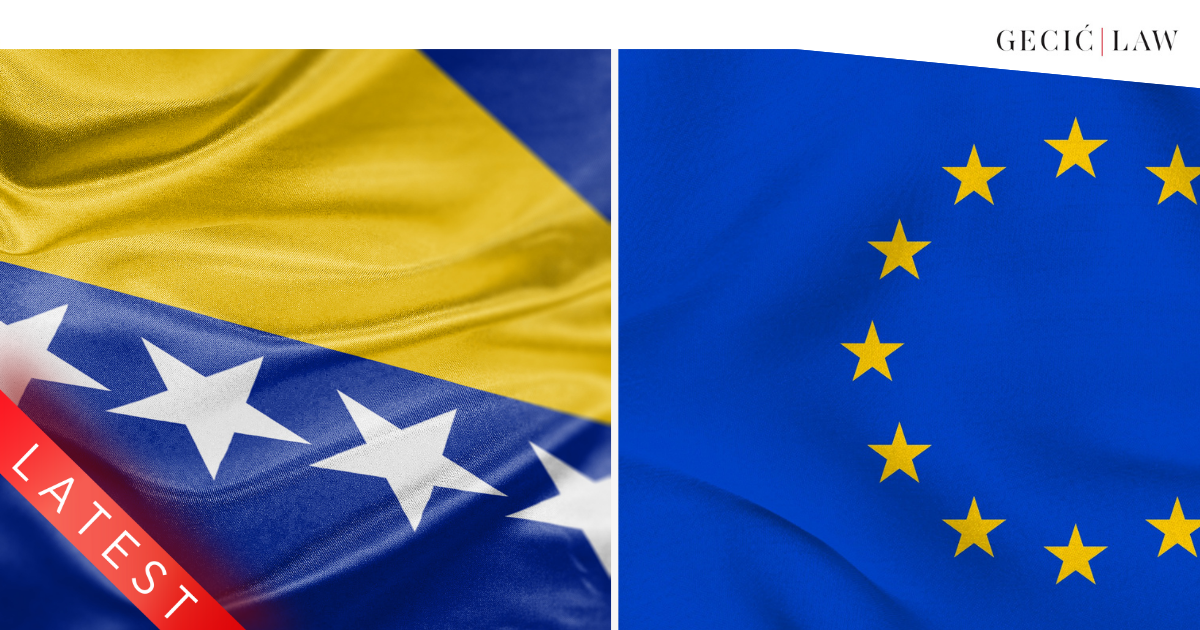
A significant and long-awaited day for Bosnia and Herzegovina! As announced by the Council of the EU, the EU General Affairs Council recommended granting the candidate status to Bosnia and Herzegovina. The European Council will make the formal decision on Thursday, December 15, at the summit of the leaders EU’s 27 in Brussels. It’s been six years since the country submitted its formal application for full membership in the EU back in 2016. The process is now nearing its conclusion, and yet another Western Balkans country is about to reach its primary goal – attaining candidate status as an essential step […]
Details
European Union (EU) and Western Balkans telecommunication operators signed a Roaming Declaration at the EU-Western Balkans Summit held on Tuesday in Tirana. According to the Declaration, Western Balkans – EU roaming charges will be reduced voluntarily from 1 October 2023, with subsequent reductions gradually leading to their complete elimination. The commitment was also reinforced as part of the Tirana Declaration, which was agreed upon at the Summit. The initiative is another crucial step in bringing the Western Balkans closer to the EU. It aims to enhance connectivity, mobility, and affordability of telecommunication services for individuals and businesses, contributing to more opportunities for […]
Details
We were recently entered the finals in four categories for The Lawyer European Awards 2022 and became one of the most nominated law firms in the whole of Europe! As last year’s winner, Gecić Law was nominated for Law firm of the Year: South East Europe, a 150 million strong market, and entered the finals with three of its practice area teams for impressive achievements in competition, corporate and litigation, standing shoulder to shoulder with the crème de la crème of the entire continent. Gecić Law received the most nominations among this year’s contenders across all of Europe – an […]
Details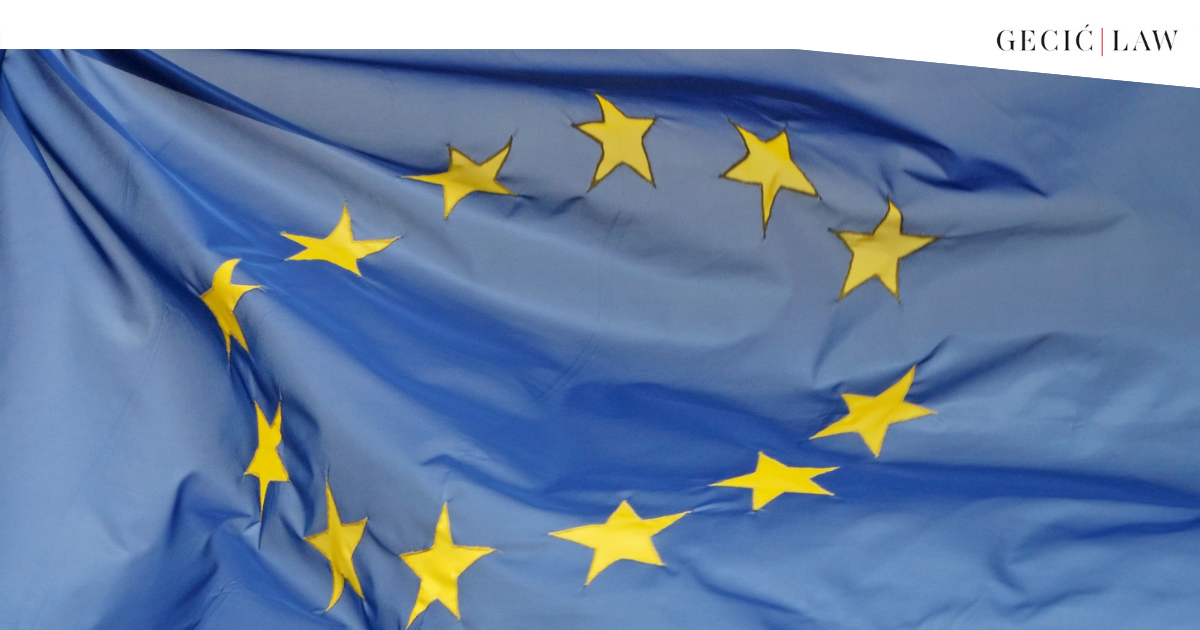
New developments are coming up in Frontex agreements! On November 18, 2022, the European Council gave the green light for the opening of negotiations to broaden the already signed cooperation agreements between Frontex and four Western Balkans countries (Albania, Bosnia and Herzegovina, Montenegro and Serbia). This cooperation reflects the European integrated border management concept with non-EU countries and enables Frontex to carry out joint operations and deploy staff in these countries. The arrangement became operational in 2019 with the signing of the first agreement with Albania. Apart from the above countries, it includes Moldova and North Macedonia. On the other […]
Details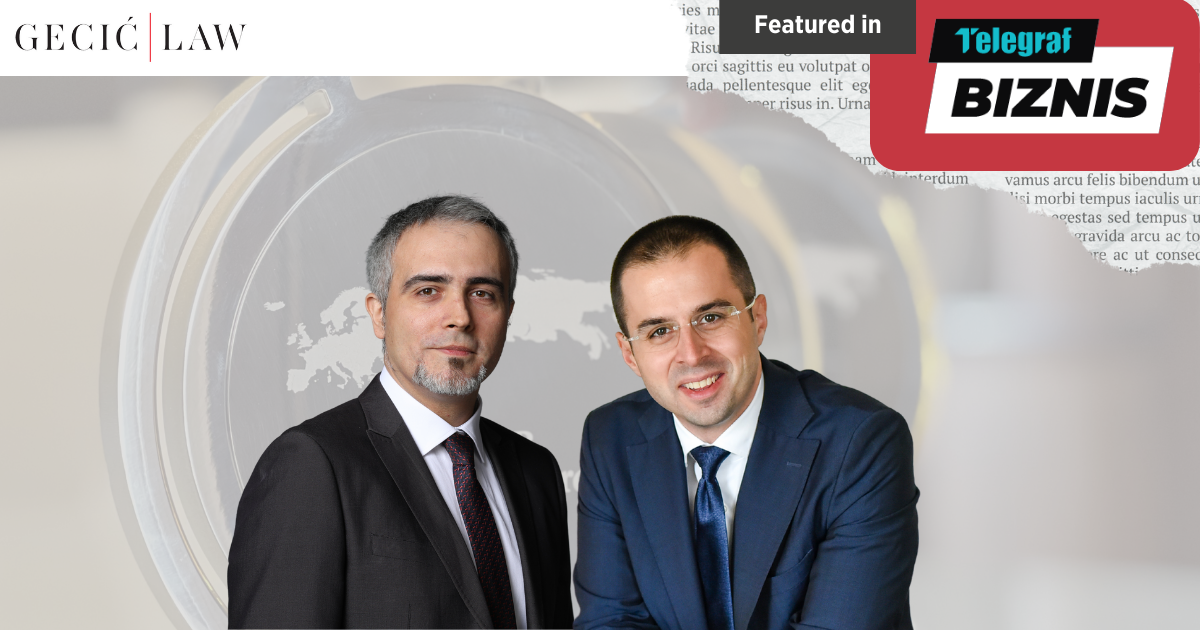
We were recently entered the finals in four categories for The Lawyer European Awards 2022 and became one of the most nominated law firms in the whole of Europe! As last year’s winner, Gecić Law was nominated for Law firm of the Year: South East Europe, a 150 million strong market, and entered the finals with three of its practice area teams for impressive achievements in competition, corporate and litigation, standing shoulder to shoulder with the crème de la crème of the entire continent. Gecić Law received the most nominations among this year’s contenders across all of Europe – an […]
Details
Our Founding Partner Bogdan Gecić shared his significant knowledge and experience with law students at the esteemed University of Florence (ita. Università Degli Studi di Firenze) as a guest lecturer to a class led by Prof. Ettore M. Lombardi. Students had the opportunity to participate actively in an online two-part mini-course titled “Elements of Competition Law: An International Perspective.” Bogdan provided practical insights into the most exciting aspects of competition law in the context of EU law and how they relate to international trade. Bogdan commented: ”I always enjoy speaking to students, and it was a great pleasure to hold […]
Details
On November 10, 2022, the European Parliament finally adopted the Corporate Sustainability Reporting Directive (“CSRD“). The CSRD intends to expand the application of corporate sustainability standards across the market by including an even larger specter of business entities compared to the application scope of the Non-financial Reporting Directive (“NFRD“). NFRD applied only to large companies with more than 500 employees. In contrast, the CSRD comes with larger ambitions and will apply not only to large companies but also to listed SMEs and third-country companies with significant operations on the EU market and a daughter company or a branch office in the […]
Details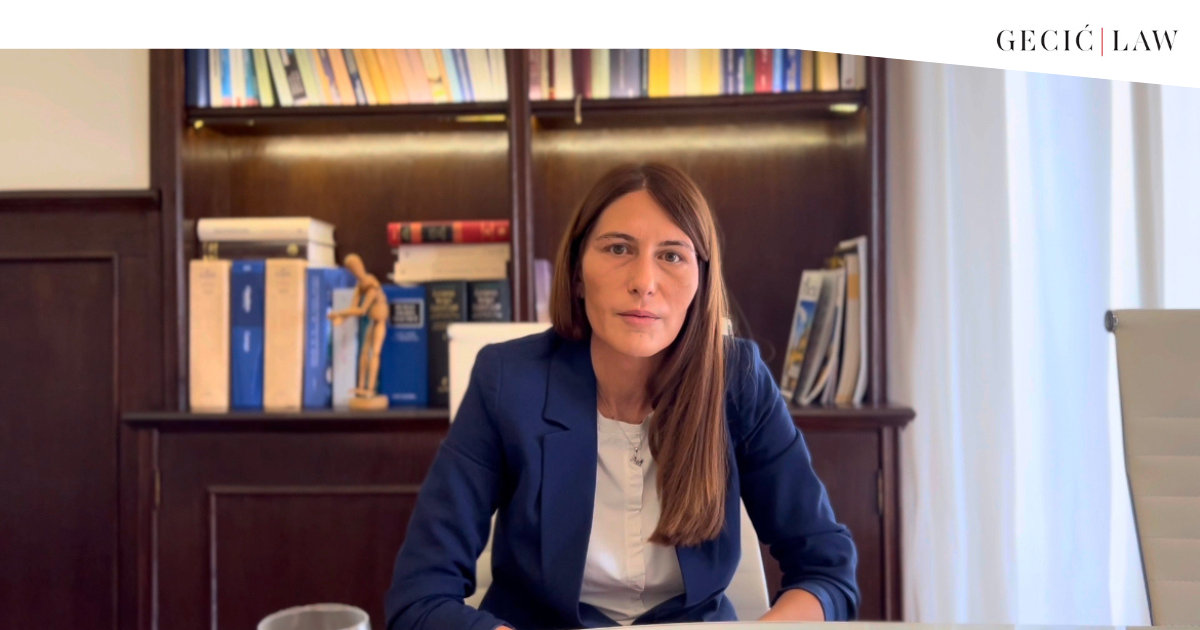
According to the International Monetary Fund, in the next 30 years, Serbia could lose as much as a fifth of its domestic workforce. On the other hand, the Serbian economy shows an opposite trend, and its growth creates a need for additional labor. When the domestic labor market cannot meet the demands of employers, this opens the doors for foreign workers. Of course, the national labor market is designed so that domestic citizens have a better position while foreigners face certain (legal) obstacles. In that sense, in this analysis, we raise the question of the legislative treatment of foreigners in […]
Details
The EU Digital Markets Act (DMA) entered into force on November 1, 2022, and it will start to apply in early 2023, while its “partner in crime,” the Digital Services Act, still awaits its moment in the limelight, announced to ensue in a year. Together they form a single set of new rules which aim to apply across the whole of the EU to create a safer and more open digital space. One may say it’s all about digital, but essentially, it’s all about undistorted competition in digital! A New Digital Era Begins with the DMA! The DMA rocked the tech […]
Details
The European Union (EU) and the Association of Southeast Asian Nations (ASEAN) signed yesterday in Bali the world’s first bloc-to-bloc Comprehensive Air Transport Agreement (CATA). Most EU member states so far have had bilateral agreements with some of the ASEAN countries, with different scopes and rules. However, very few had such arrangements with all the countries of ASEAN. The new agreement now includes all member states of each region and replaces all existing contracts with a unified framework, connecting more than one billion people. The agreement aims to revitalize air travel and transport between Southeast Asia and Europe, which has […]
Details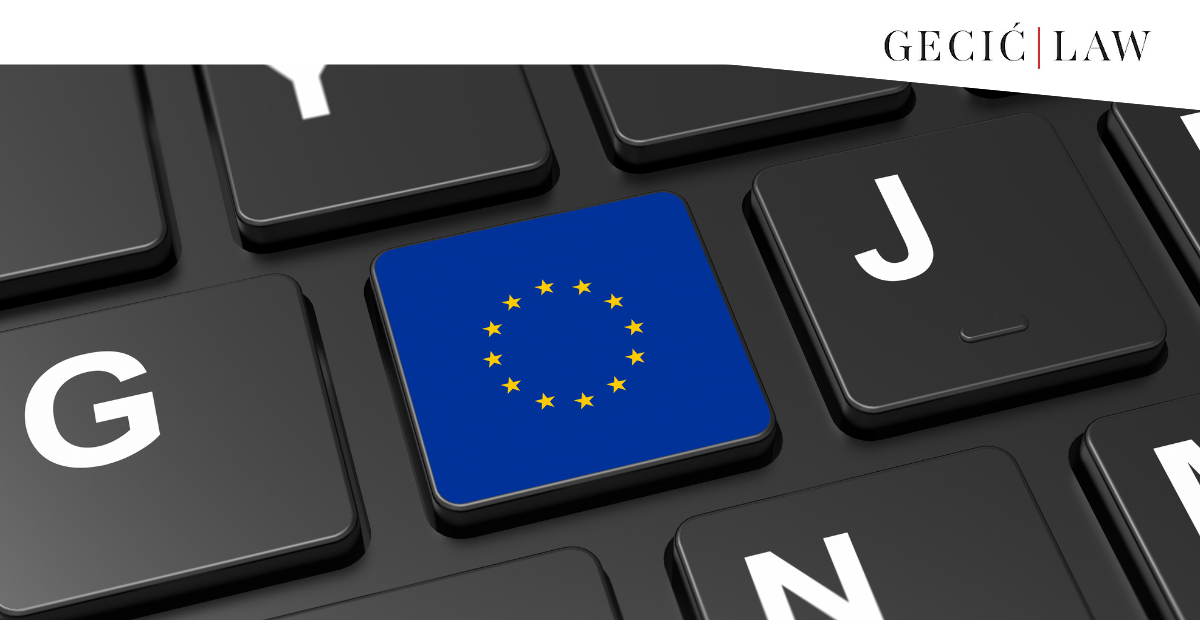
Europe is now fit for the digital age as the long-awaited Digital Markets Act (DMA) was published in the Official Journal on October 12. Adopted by the European Parliament in September, the DMA will enter into force on November 1 and start to apply in May next year. The act provides a framework to prevent the most prominent digital companies, the so-called “gatekeepers,” from abusing their market power, ensuring greater competition in digital markets, and sparking more innovation in the industry. The DMA will primarily target the world’s most powerful corporations in the IT industry, commonly referred to as the “Big Five” […]
Details
Newsflash! The time has come for universal chargers to hit it on! Following the provisional political agreement reached in June 2022 between the EU institutions, on October 4, 2022, the European Parliament passed a new law on universal chargers to ease reducing e-waste and enable more sustainable choices for consumers. What does this actually refer to? Namely, all small and medium-sized mobile electronic devices will need to be equipped with a USB Type C port. Thus, consumers will no longer have to use different chargers to charge their devices from different manufacturers. The agreement will be applied to […]
Details
Despite rapid developments in technology and business, EU laws on e-commerce have not been updated for more than 20 years. To keep up with the digital revolution, the EU Parliament („EP“) adopted the Digital Markets Act (“DMA”) and the Digital Services Act (“DSA”). The DMA was adopted in July 2022 and it will start to apply at the beginning of 2023. As for the DSA, it is expected to be implemented in early 2024. Why was the DMA adopted? This act provides a framework that is tailored to the major influence of the largest digital companies, known as “gatekeepers” – […]
Details
The European Commission’s (Commission) antitrust enforcers are investigating Google Play Store. The antitrust enforcers are now looking into the restrictions Google has placed on the Play Store app market. According to the sources, the Commission has sent a confidential questionnaire to several companies that use the Play Store. Most of the questions are about the billing terms and fees they must pay to this tech giant to be listed in its application catalog. Any purchase made inside an application (in-app) that has been downloaded from the Play Store is subject to a 15% to 30% fee that Google charges. Publishers […]
Details
Last year, the top 12 European football clubs formally agreed to organize a separate competition. Gecić Law has already given legal insights on establishing the European Super League (“ESL”) – the football league that may never start. The ESL aims to compete with – if not completely replace – the current UEFA Champions League, the elite European football championship organized by the UEFA. The ESL has experienced tremendous pressure from the fans, officials, coaches, players, other stakeholders and especially UEFA, which resulted in (temporary) stopping the initiative. Much of the opposition to the ESL stemmed from fears of elitism and […]
Details
Building on our CBAM series, we can now report that the CBAM was adopted by the EU Parliament (“Parliament”) on June 22, 2022. The next step is the EU Council approval (“Council”). Even though there are still some differences regarding the approach between the Parliament and the Council, it is assumed that their shared vision of the overall goals will be decisive in finding a compromise on regulation introducing CBAM. Back in 2005, the EU established the EU Emissions Trading System (“ETS”), which has since become a cornerstone of the EU’s climate change policy and its most important tool for reducing […]
Details
Today in Brussels, the EU parliament, EU governments and the European Commission will try to agree on uniform rules for corporate reporting on environmental, governance and social standards (ESG). This will be the last time that the lawmakers meet to confirm the new reporting rules. Pascal Durand, the lead negotiator for the European parliament, stated ahead of the meeting: “If we strike a deal tonight, the EU will set the tone of the global conversation on sustainable standards for the company of the 21st century.” This highlights the importance of the new uniform reporting rules for the companies, and as […]
Details
In this edition of our series dedicated to our esteemed colleagues who were recognized in this year’s The Legal 500 EMEA rankings, we bring you our founder and managing partner Bogdan Gecić. After being recognized by The Legal 500 as a Leading Individual in Competition for seven consecutive years, in this year’s rankings, Bogdan was especially honored by being amongst the distinguished few to be inducted into the elite global directory’s newly established EMEA Hall of Fame category, which highlights the law firm partners who are at the pinnacle of the profession having received constant praise by their clients for continued […]
Details
The first post-covid Global Meeting of the elite global legal alliance TerraLex was last week’s highlight as lawyers from 180 member law firms from across the globe gathered in Oslo. Delegates had the opportunity to learn, collaborate and network with their colleagues in a unique series of activities and a relaxed collegial atmosphere. The Gecić Law team took to the center stage, as for the first time the alliance built its annual meeting around a single theme, choosing one of the hottest topics in the legal world today – ESG: Environmental, Social, and Governance. The gathering took a multifaceted approach […]
Details
Building on our series of CBAM articles, we report shocking news from the EU Parliament. Members of the EU Parliament (“MEPs”) unexpectedly rejected a series of legislative proposals from the “Fit for 55” legislative package, including the EU Parliament’s negotiating position on the introduction of a Carbon Border Adjustment Mechanism (“CBAM”). Back in 2005, the EU established the EU Emissions Trading System (“ETS”) which has since become a cornerstone of the EU’s climate change policy and its most important tool for reducing greenhouse gas emissions. Since its inception, the ETS is constantly being reformed which was one of the goals […]
Details
In anticipation of the June 7 plenary session when the European Parliament will take on the CBAM proposal, we delve into the key ideas behind and the expected game-changing impact of the regulation on international trade. In this edition of our CBAM series, find out more about how this wind of change may affect consumers, businesses and economies across the globe. Why is the EU introducing a new carbon pricing policy? As a new policy, the Carbon Border Adjustment Mechanism (“CBAM”) is being developed to work in conjunction with the EU Emission Trading System (“ETS”) – a cornerstone of the EU’s […]
Details
What has been in the making for years now is set to become a reality very soon. The EU’s Carbon Border Adjustment Mechanism (“CBAM”) is expected to be adopted at the plenary session of the European Parliament, which will be held on June 7, 2022. The EU is finalizing its plans to introduce a charge at its border for carbon emissions associated with products sold in the EU. This is likely to mark a tectonic shift in international trade with far-reaching implications for businesses and economies around the world that rely on exporting their goods to the European Union. In […]
Details
Leading economic minds are highlighting climate change as one of the most threatening factors to today’s relative economic prosperity. Although environmental policies have been in place for a long time, they appear to have had little impact in practice. The lack of clear definition and specific rules in the field may be an important factor, as this has been a cause of much concern and given raise to questionable practices, including the growing phenomenon of greenwashing – a deceptive method of marketing in which a product, good, or service is presented to appear to follow environmental protection principles intended to […]
Details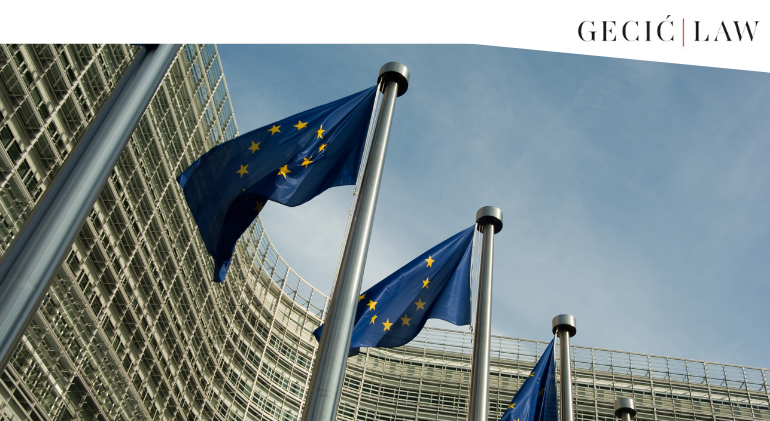
On May 10, 2022, the European Commission adopted a new Vertical Block Exemption Regulation (“VBER“) and related guidelines (“Vertical Guidelines“), following a detailed review of the previous Vertical Block Exemption Regulation dating to 2010 (“old VBER“). The objective of the VBER is to exempt agreements between undertakings operating at different levels of the supply chain (“vertical agreements”): if certain market share thresholds are met, and provided the agreement does not contain certain prohibited restrictions (“hardcore restrictions”). In other words, the VBER aims to recognize which types of vertical agreements are generally efficiency-enhancing and provide benefits to consumers. One of the […]
Details
The Committee on the Environment, Public Health, and Food Safety (“ENVI”) decided on Wednesday to accelerate the shift to electric vehicles in Europe to reach increased climate ambitions. In July 2021, as part of the ‘’Fit for 55’’ package, the European Commission (‘’Commission’’) decided to propose an amendment to the Regulation 2019/631 to strengthen the CO2 emission performance standards for new passenger cars and new light commercial vehicles in line with the Union’s increased climate ambition. Currently, carmakers need to ensure that their average fleet of new cars emits no more than 95 grams of C02 a kilometer. Lawmakers have […]
Details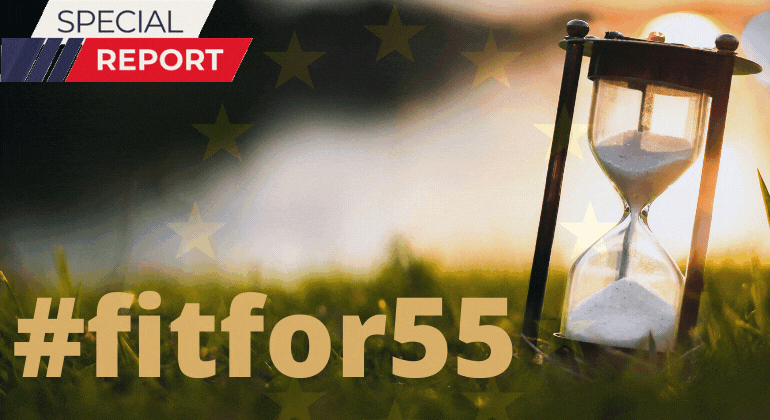
Today is Earth Day, a global celebration held on April 22 every year to show support for environmental protection. It began on April 22, 1970, and has since grown to include a diverse range of events coordinated globally, involving over a billion people in over 193 nations. On Earth Day 2016, the United States, the United Kingdom, China, and 120 other countries signed the historic Paris Agreement. To mark this important day, Gecić Law is bringing you a special Insights Report dedicated to the European Union’s legislative journey toward a carbon-neutral continent. In July 2021, the European Commission (“EC“) adopted […]
Details
What are shell companies? These are legitimate legal entities that do not own assets or conduct business operations. Although they are not illegal, they may be used illicitly. Shares of shell companies are not traded on stock exchanges. Most exist on paper only and are little more than a mailing address. That is why the European Commission (“EC”) has issued a draft directive on shell companies. Legal vs Illegal Use of Shell Companies Examples of the legal use of a shell corporation could be to serve as vehicles in cross-border transactions, such as mergers and acquisitions. However, shell companies are […]
Details
The Court of Justice of the European Union (“CJEU“) delivered two judgments on 22 March 2022. By those judgments, the CJEU ruled on the scope of the protection afforded by the prohibition of ne bis in idem principle in competition law. The CJEU recalled in both cases that the application of the ne bis in idem principle is subject to a twofold condition. First, there must be a prior final decision and secondly, the prior decision and the subsequent proceedings must concern the same facts. The CJEU clarified that the limitations may be imposed on the exercise of a fundamental right, such as the prohibition against double […]
Details
In late 2021, the Romanian Constitutional Court issued a statement regarding the judgment of the Court of Justice of the European Union (”Judgment”) in Cases C-357/19 Euro Box Promotion and Others, C379/19 DNA – Oradea Territorial Service, C-547/19 “Romanian Judges Forum”, C-811/19 FQ and others and C-840/19 NC. The Judgment established that national judges are entitled to disregard the decisions of the Romanian Constitutional Court that are not aligned with the EU law without any risk of disciplinary measures. Moreover, it addressed the Romanian justice reforms and pointed out the mandatory character of the EU’s recommendations, embedded in the Cooperation and […]
Details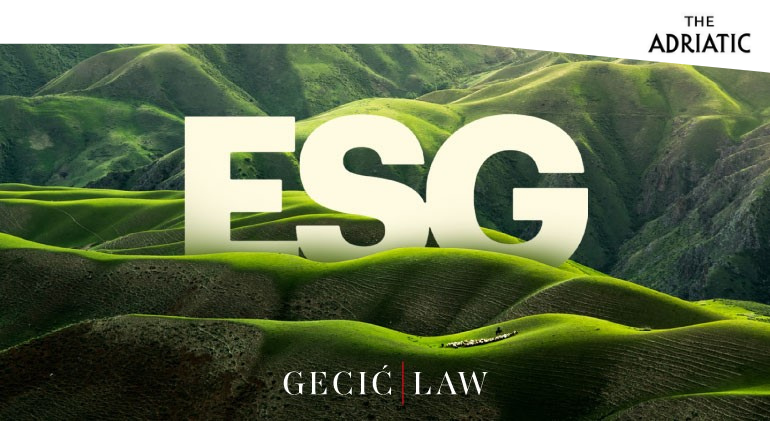
Our founder and partner Bogdan Gecić spoke with the regional publication The Adriatic, an English-language publication by the Institute for Strategic Solutions (Inštitut za strateške rešitve) in Ljubljana. It features fundamental business and geopolitical issues of importance for the region of Southeast Europe. The interview was published in the February issue. Bogdan spoke about the Gecić Law’s achievements and its strengths when advising diverse entities in the SEE region. He singled out innovation as the key ingredient to the firm’s success and the decision to expand into new practice areas such as ESG, one of the most pressing issues of […]
Details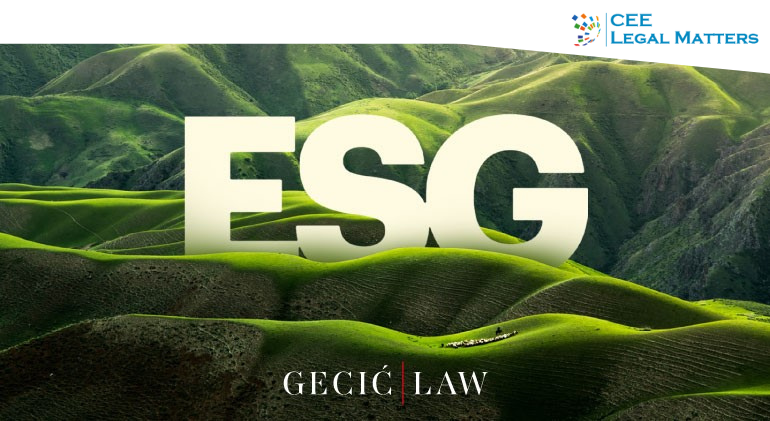
Our Founding Partner Bogdan Gecić and Partner | Head of Corporate/M&A Ognjen Colić spoke with the Managing Editor of the preeminent regional legal publication CEE Legal Matters which invited Gecić Law as a leading regional law firm to take part in its featured interview published in the December edition dedicated to the Western Balkans. They talked about the importance of ESG in the region, the firm’s new practice area and its unique approach to advising clients in the field. Gecić Law recently became the first independent law firm in the region to expand into the area of Environmental, Social & […]
Details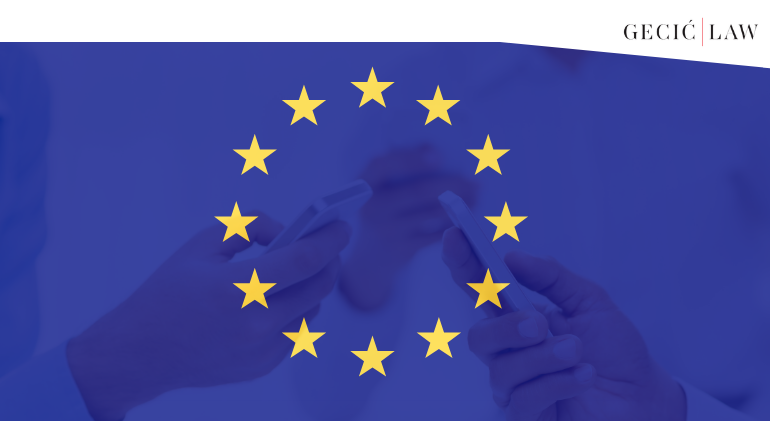
The European Ombudsman Emily O’Reilly stated on Friday that text messages between EU Commission President Ursula von der Leyen and the CEO of pharmaceutical giant Pfizer are documents the public should have access to. O’Reilly’s opinion indicates that the Commission mishandled a request for public access to these messages, which concern the EU’s purchase of COVID 19 vaccines from the manufacturer. The European Commission had earlier denied a request made on 4 May 2021 via Access Info’s AsktheEU.org platform by Alexander Fanta, a journalist with netzpolitik.org. Access Info’s platform enables citizens of the EU direct access to public information. The […]
Details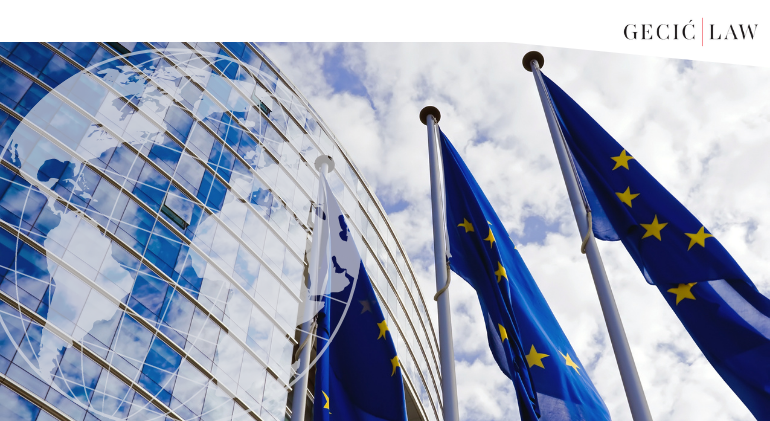
The Global Gateway initiative was unveiled on December 1, 2021, as a strategy of the European Union (“EU”) to support sustainable infrastructure development around the world. The EU is planning to invest EUR 300 billion over five years. The European Commission pitched the Global Gateway as a template for how Europe aims to build more resilient connections across the globe. The Global Gateway is about increasing investment, promoting values and high standards, good governance and transparency, partnerships based on equality, green, clean, secure infrastructure, but also catalyzing and supporting private sector investment in new markets as part of the Global […]
Details
For several years in a row, Serbia is ranked among the leading destinations for foreign investors. According to the Greenfield FDI Performance Index, in 2019 Serbia was ranked first among 105 states observed by the index. A similar status was maintained throughout the subsequent years as Serbia ranked fifth in 2020, and sixth in 2021. According to the World Bank Doing Business rankings, Serbia is ranked among business-friendly jurisdictions, whose ease of doing business index grows regularly. The willingness to invest raises concerns regarding the legal and institutional framework of the host economy. Bilateral investment treaties (“BIT”) have been presented […]
Details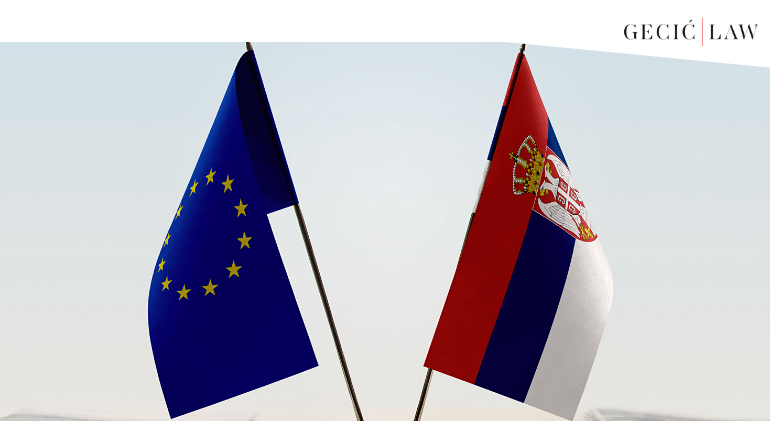
Cluster 4 on the Green Agenda and Sustainable Connectivity was formally opened at an Intergovernmental conference on Tuesday, in Brussels, covering four negotiating chapters. Earlier this year, and in order to make the accession process more efficient, the Commission proposed and the EU Council agreed to implement the revised Enlargement Methodology, according to which negotiating chapters are organized in thematic clusters. Clusters were envisaged as a means to ensure stronger progress monitoring and accelerated integration. The Green Agenda and Sustainable Connectivity cluster encompass Chapter 14 on Transport Policy, Chapter 15 on Energy, Chapter 21 on Trans-European Networks and Chapter 27 […]
Details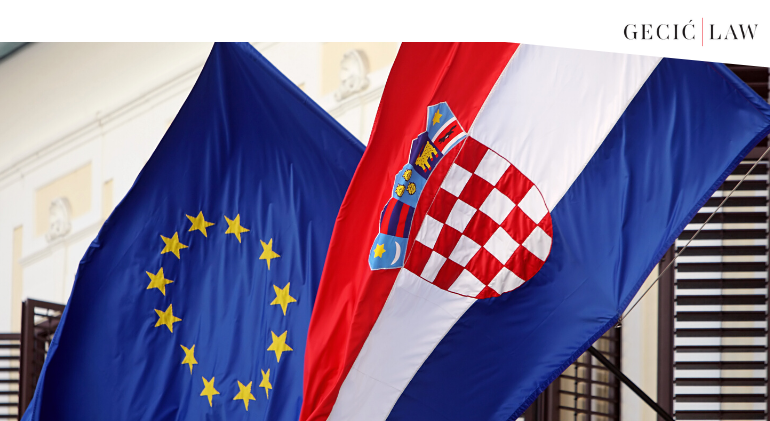
On December 9, 2021, the European Commission (’’Commission’’) approved Croatian State aid in the amount of EUR 783 million to support the production of electricity from renewable energy sources as part of the European Union’s endeavors to meet the climate and energy objectives set by the Communication ‘A policy framework for climate and energy in the period from 2020 to 2030’. The Croatian scheme will be open until 2023 and will be paid out to the selected beneficiaries for a period of 12 years. The Commission assessed this scheme under the 2014 Guidelines on State aid for environmental protection and […]
Details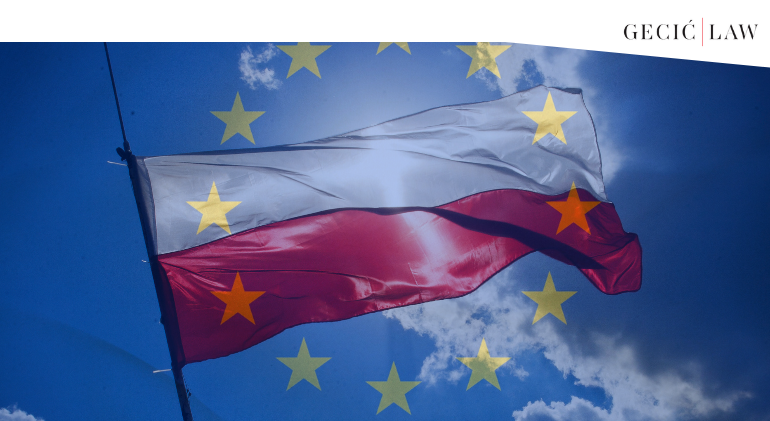
The battle for supremacy i.e. primacy between Member State and European Union (“EU”) law is in full swing, with the prospect of even more trouble. In late October, the EU’s highest court (“CJEU”) issued a landmark daily fine to Poland in the amount of EUR 1 million for failing to comply with CJEU’s order. This tremendous fine is the biggest to date and may very well be a warning to any other Member State that might try to question the primacy of EU law. Getting to the Biggest Supremacy Fine Polish judicial system reforms are what triggered the dispute between […]
Details
Our own Ivana Stojanović Raišić, Counsel, shared her tremendous knowledge and experience with the students of the esteemed University of Florence (ita. Università degli Studi di Firenze) in a unique experience, as a guest lecturer in the International Business Law Course, led by Prof. Ettore M. Lombardi. Students had the opportunity to listen in and take an active part in an online two-part mini-course titled Elements of Competition Law: An International Perspective, where Ivana provided practical insights into the most interesting aspects of competition law and how they relate to business activity. Students engaged in a number of hands-on exercises […]
Details
On September 9, 2021, the National Assembly of the Republic of Serbia adopted a new Consumer Protection Act (“Act”), which entered into force on September 19, 2021. The Act shall become applicable three months following its entry into force i.e. on December 20, 2021 (save for the articles regulating out-of-court settlements of consumer disputes, which shall become applicable six months following the entry into force i.e. on March 20, 2022). The Act’s main objectives are the improvement of consumer protection, more efficient implementation of statutory solutions and the comprehensive harmonization of consumer rights in Serbia with EU consumer protection law, […]
Details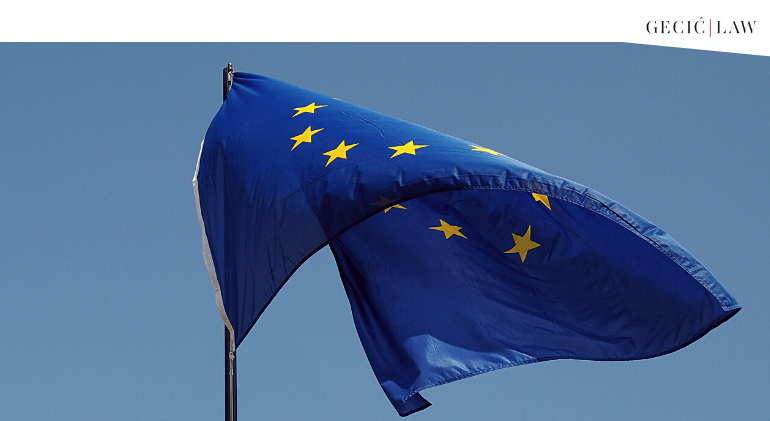
The European Commission has proposed the prolongation of the State aid Temporary Framework until 30 June 2022, in order to expedite the ongoing Covid-19 economic recovery in Europe. The Temporary Framework was initially adopted on 19 March 2020 and to this date, it was amended and prolonged five times (more information available here and here). Margaret Vestager, the Executive Vice-President, who is in charge of the competition policy said that we are finally seeing improvements in the EU economy after the big crisis that hit the EU due to Covid-19. She also added: ’’[W]e need to be aware of disparities […]
Details